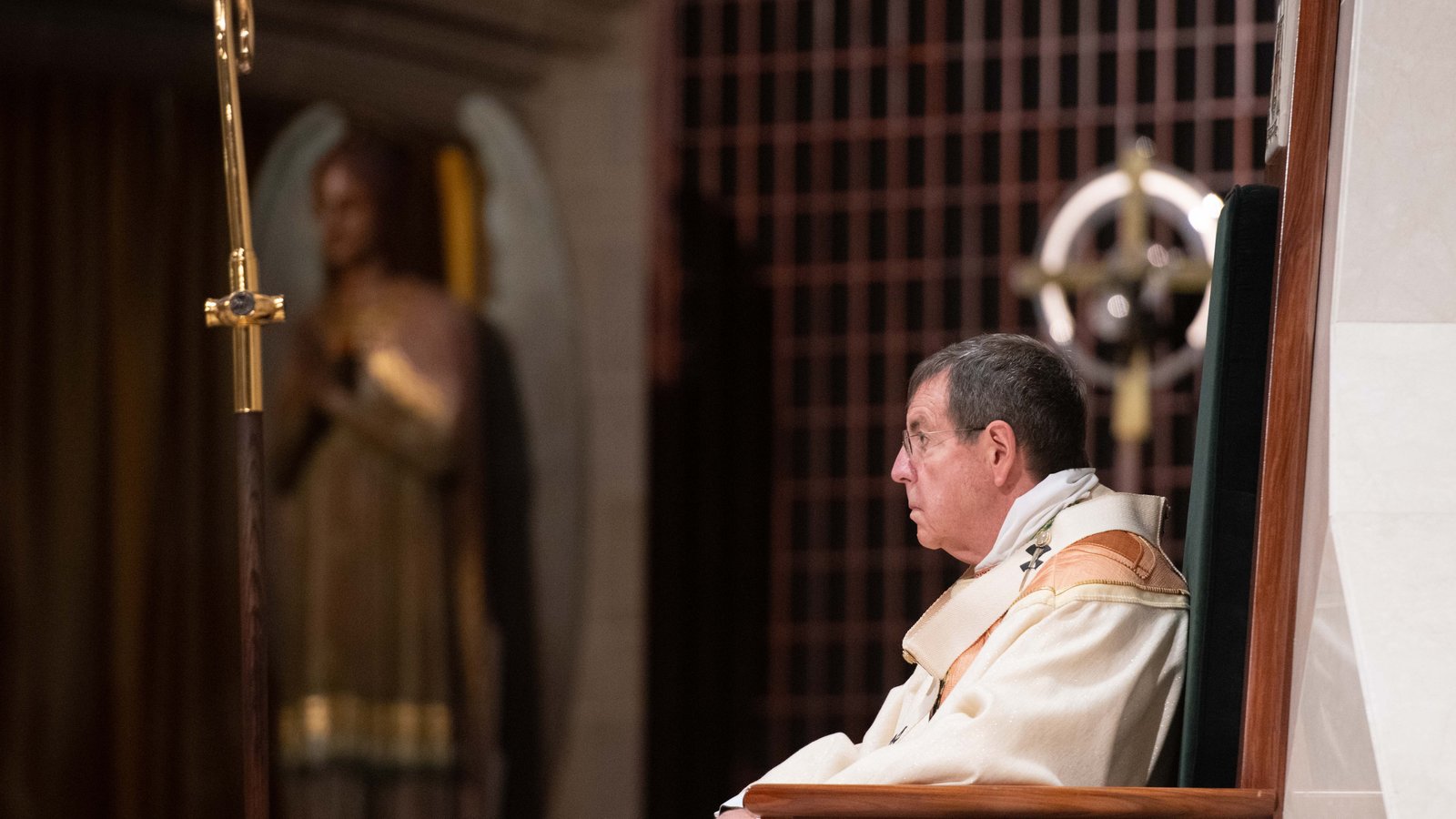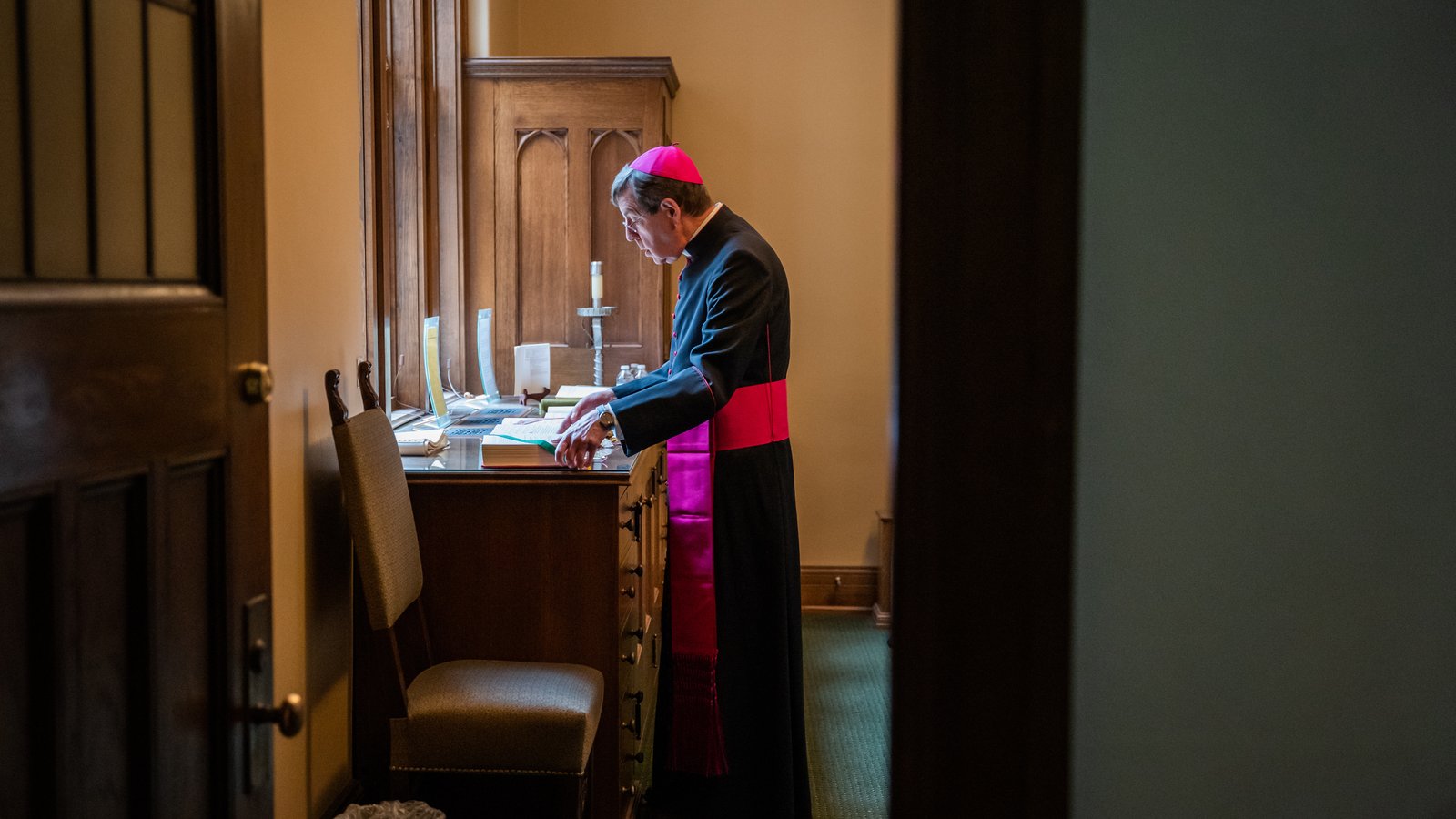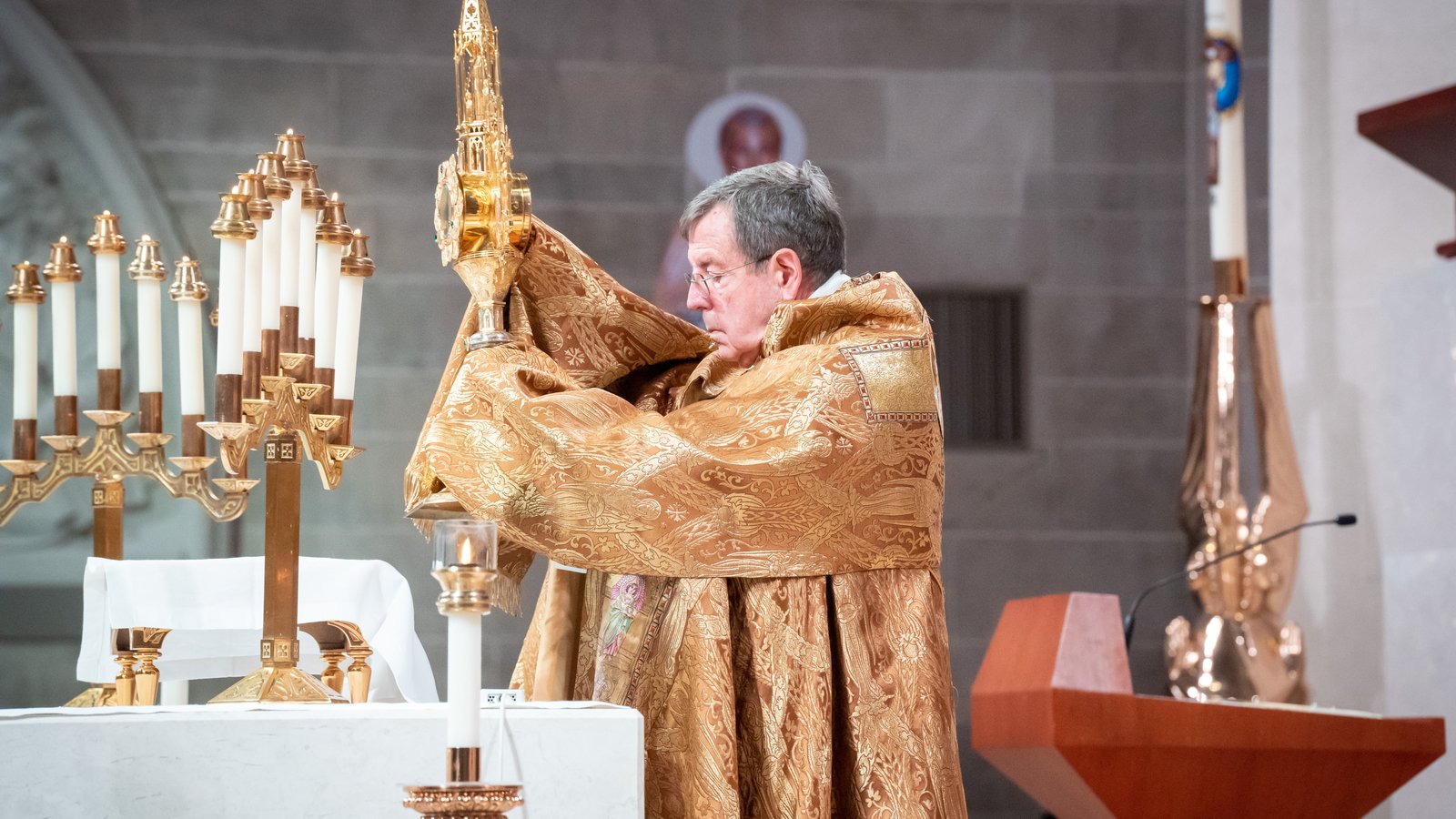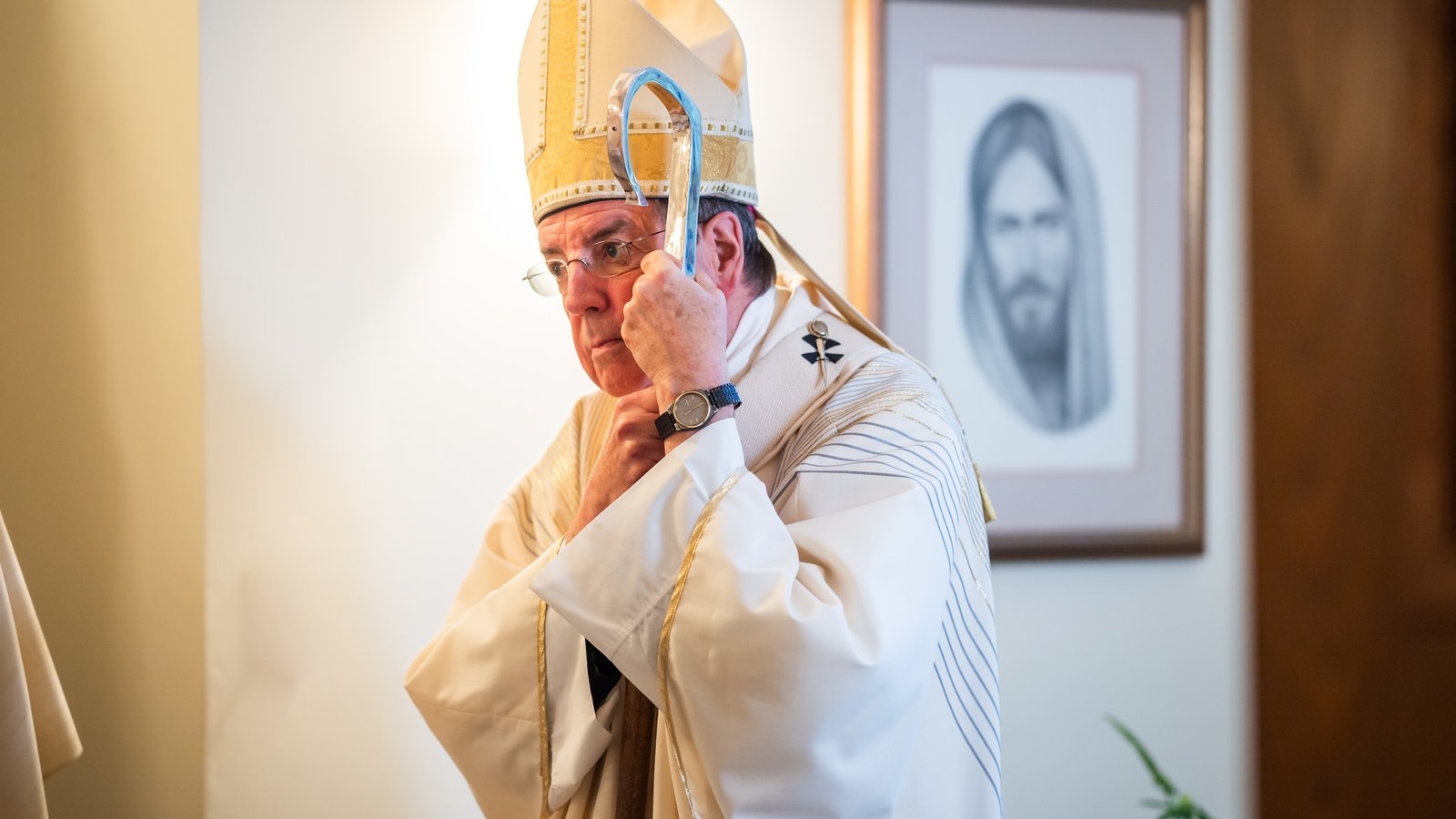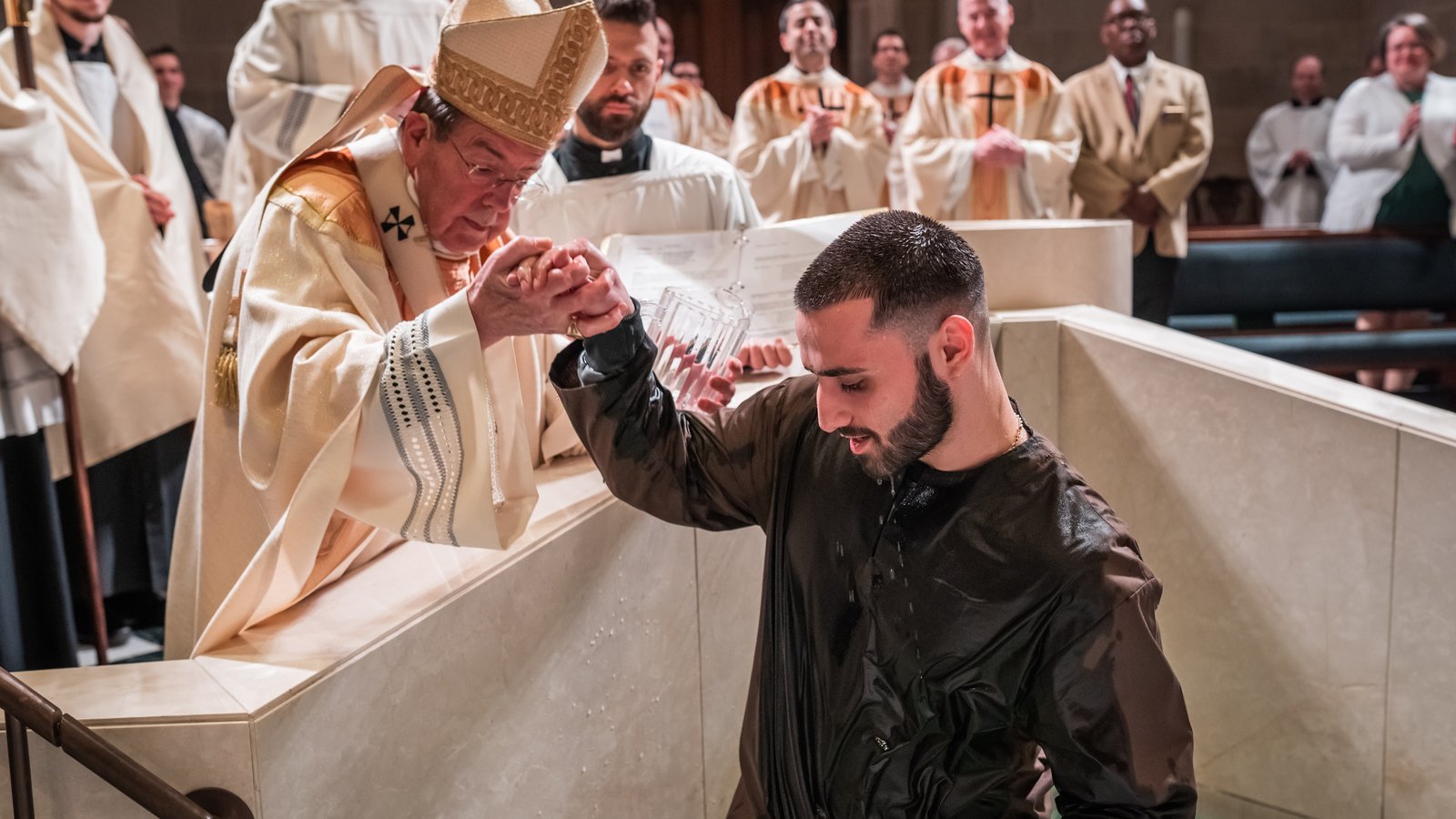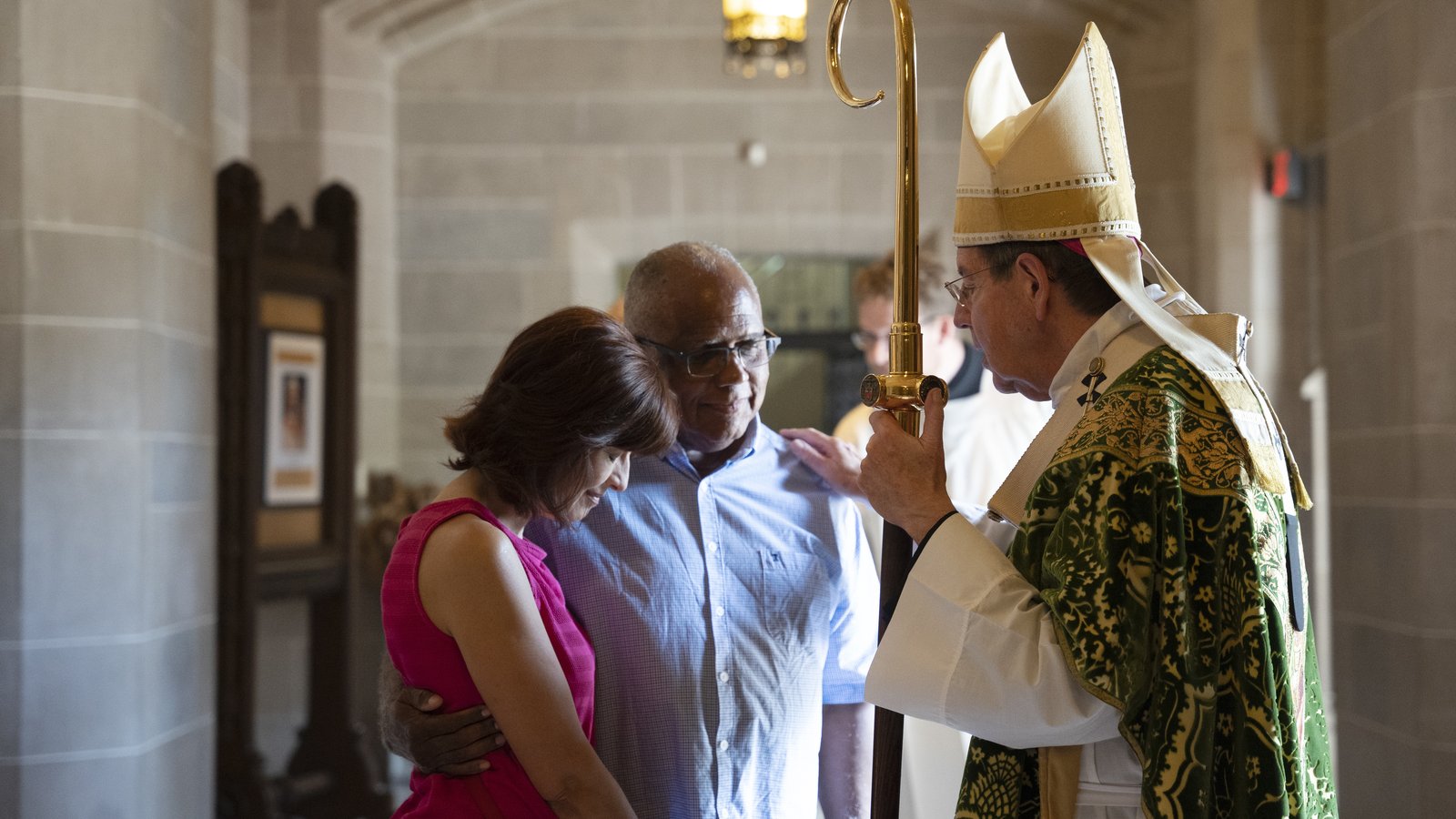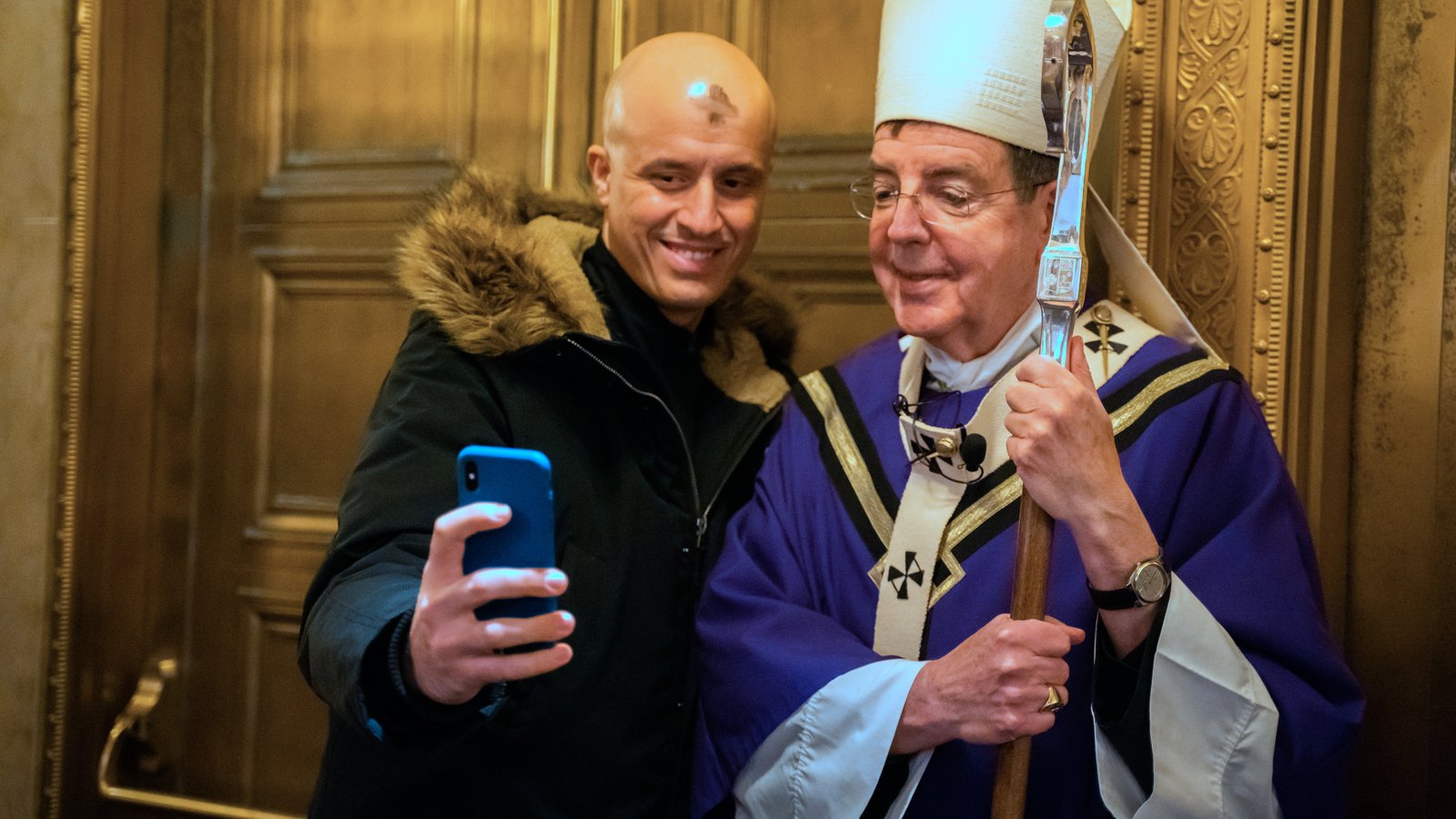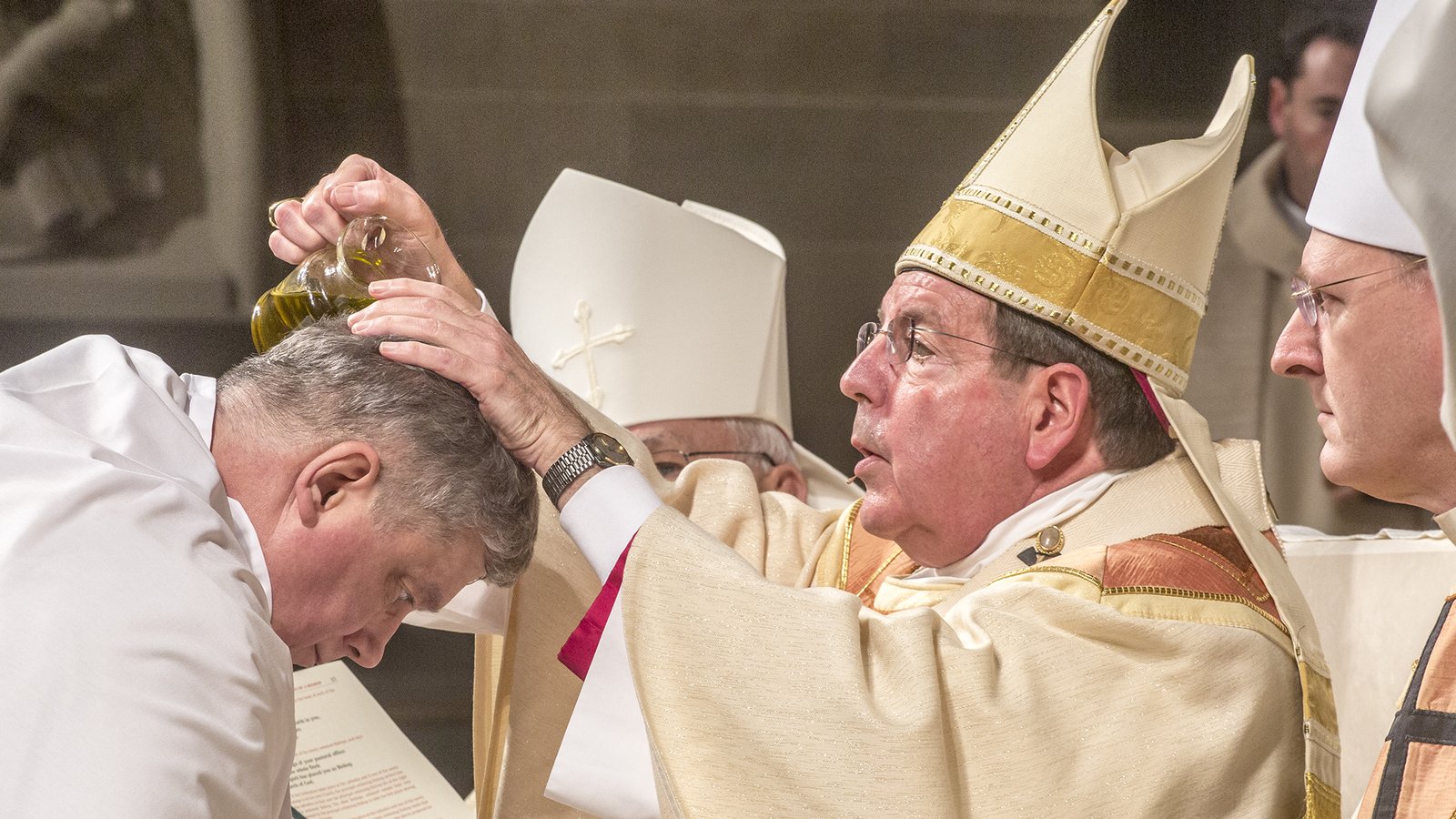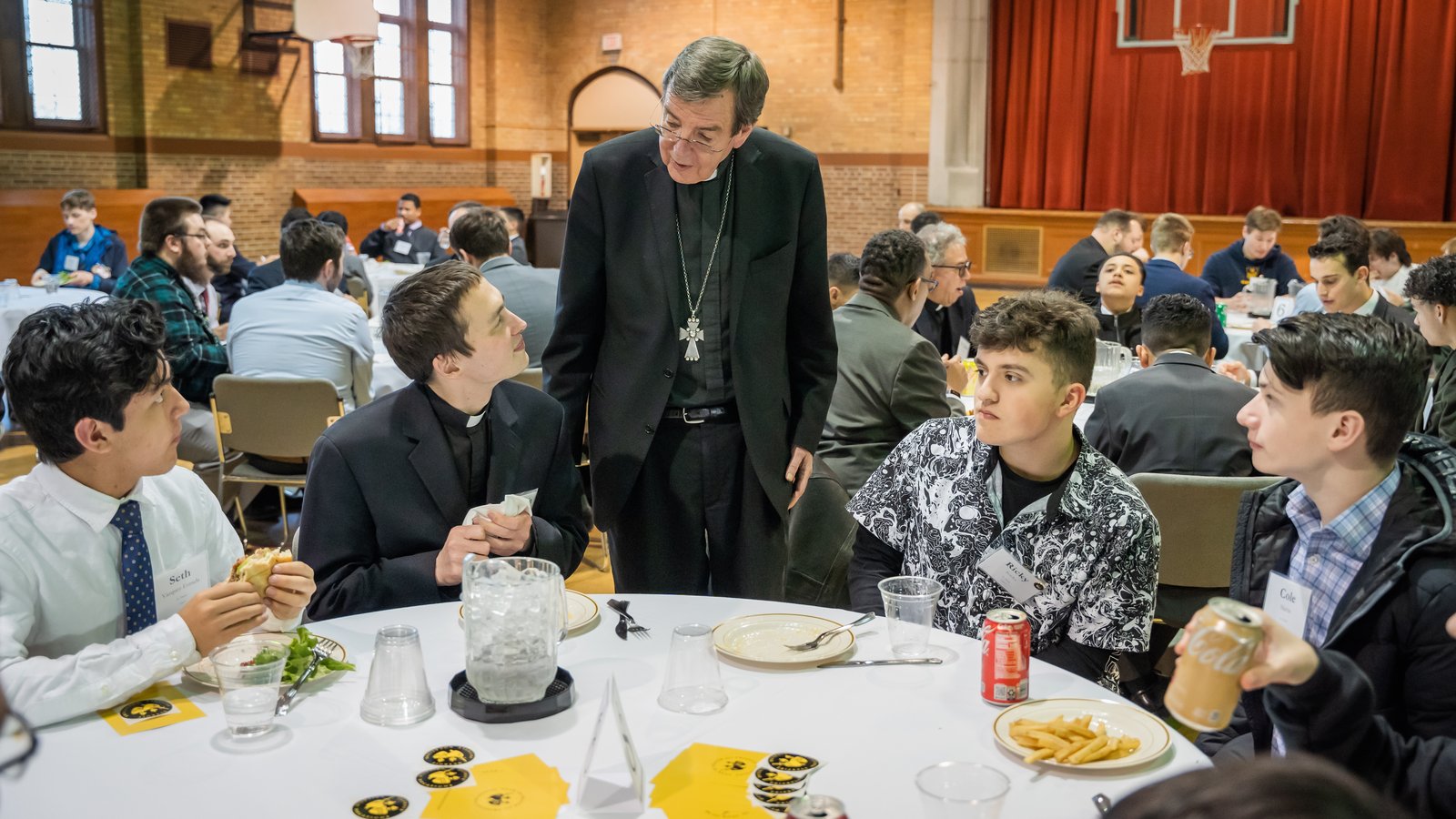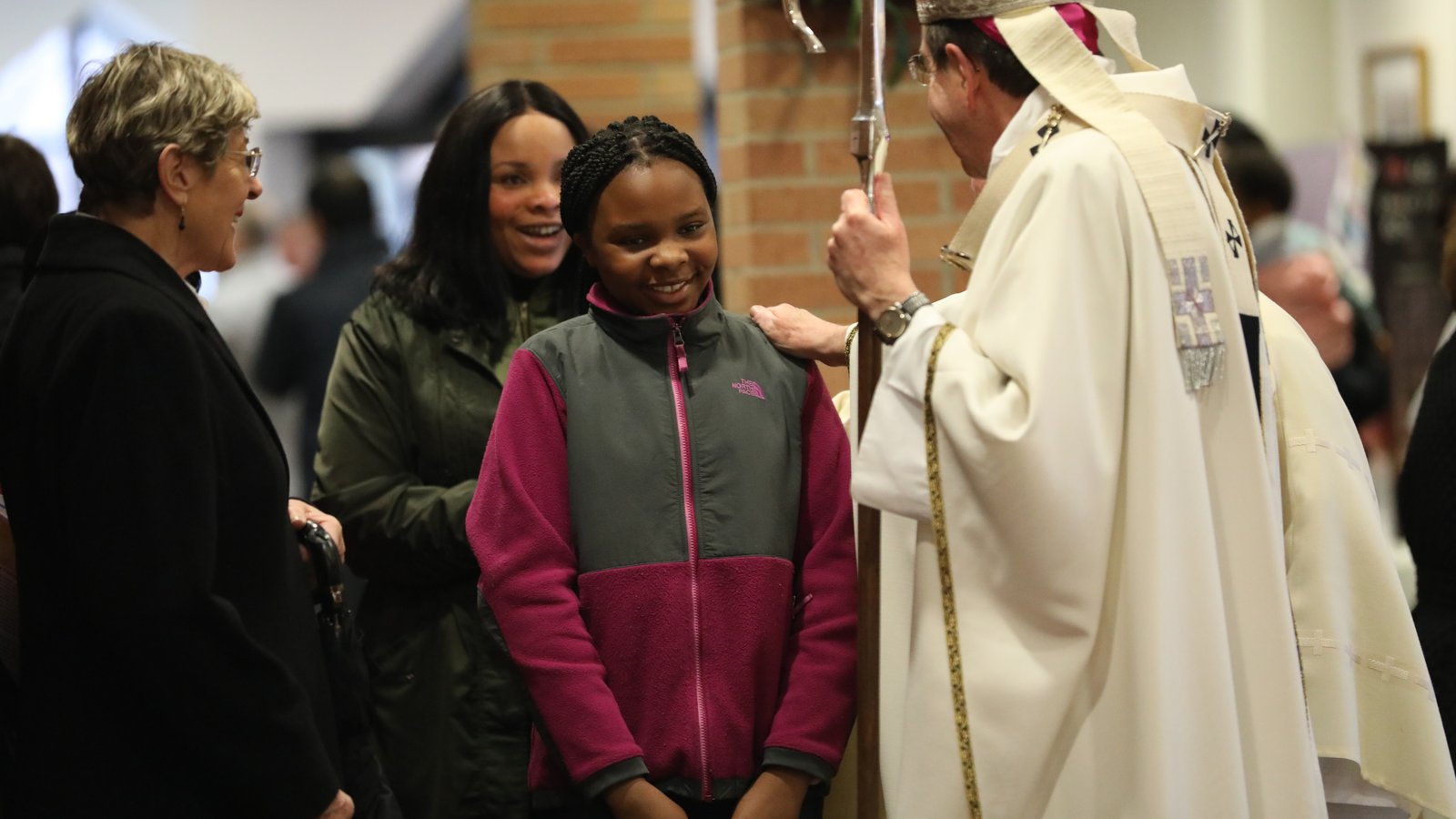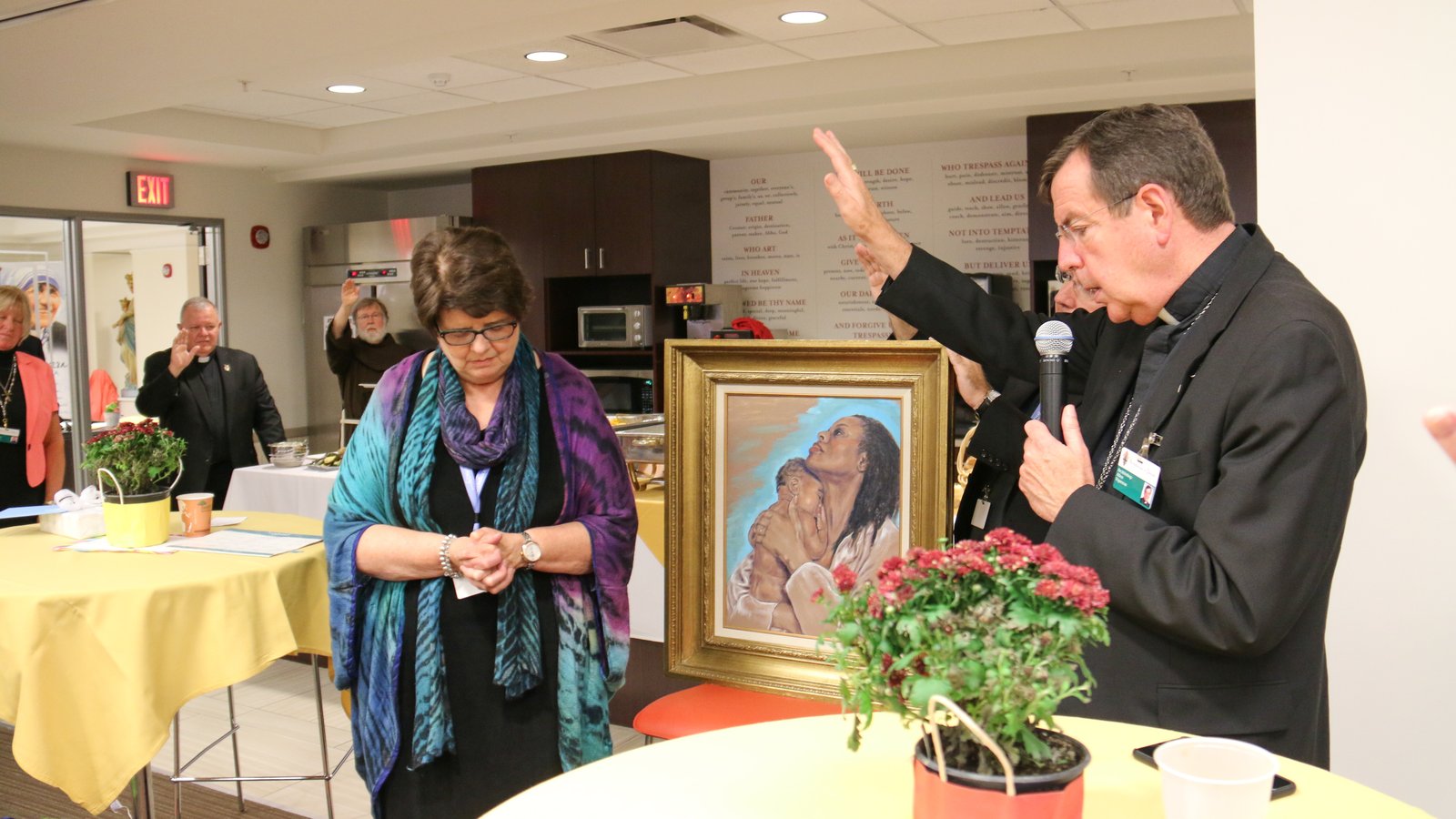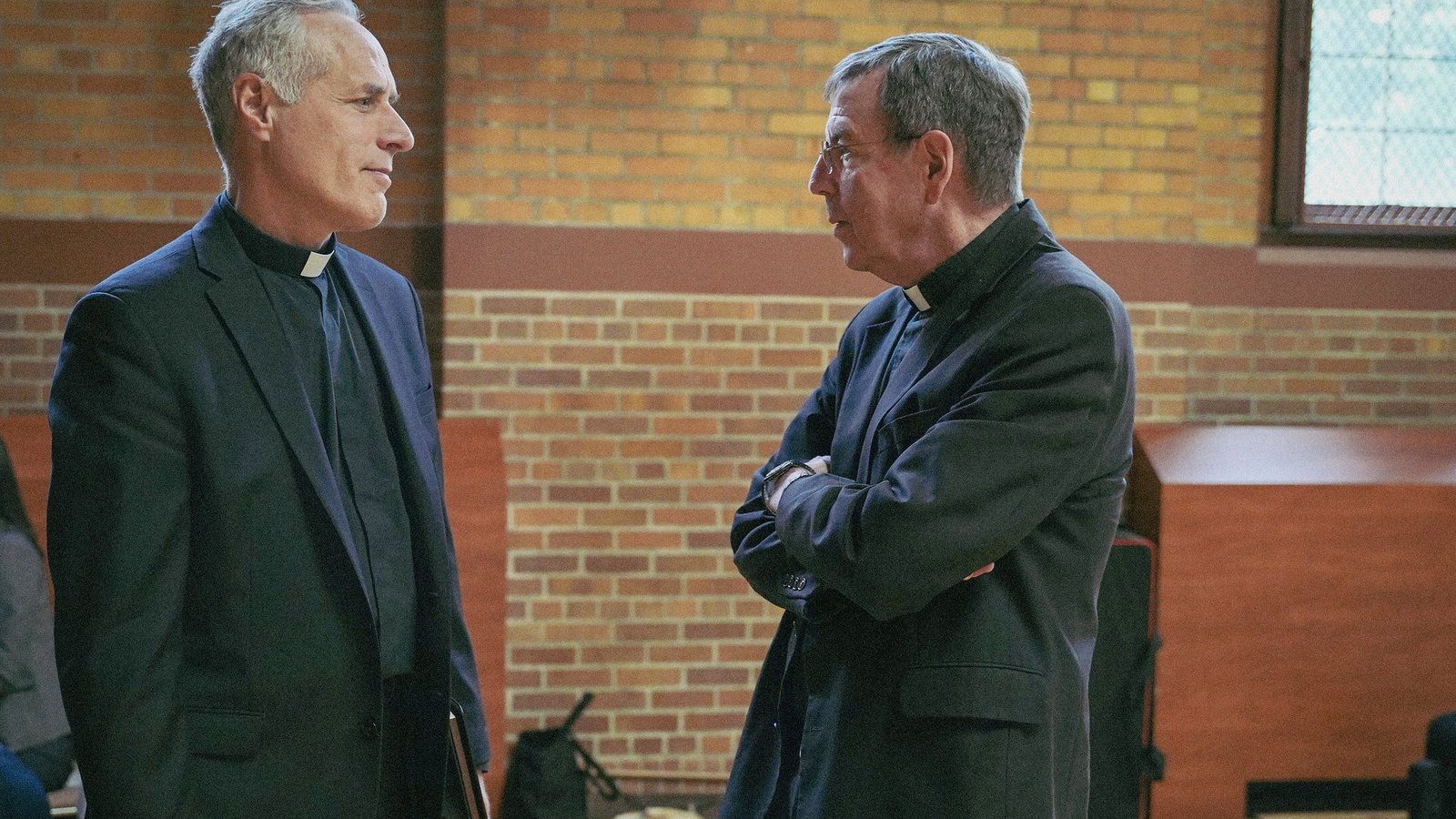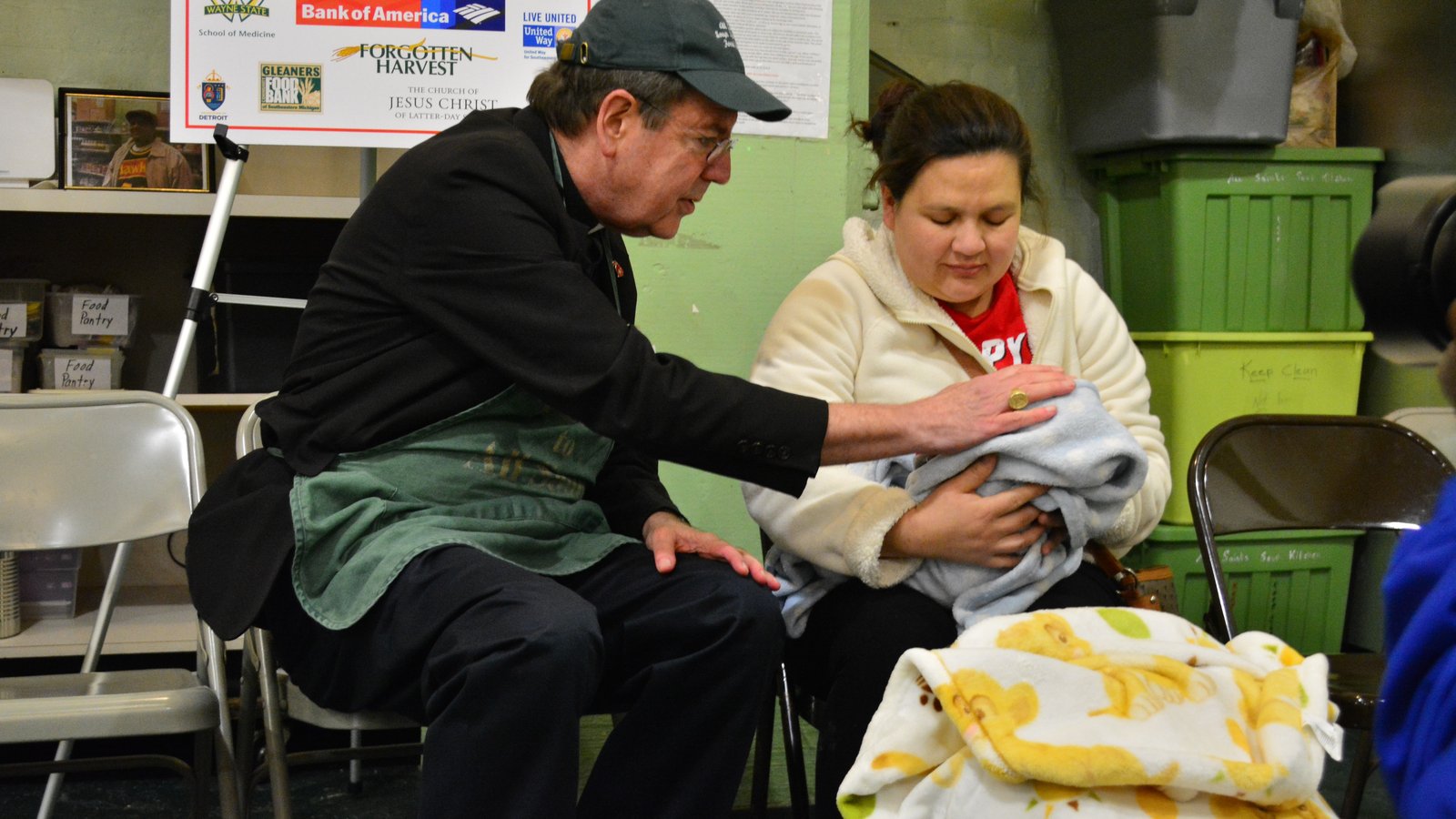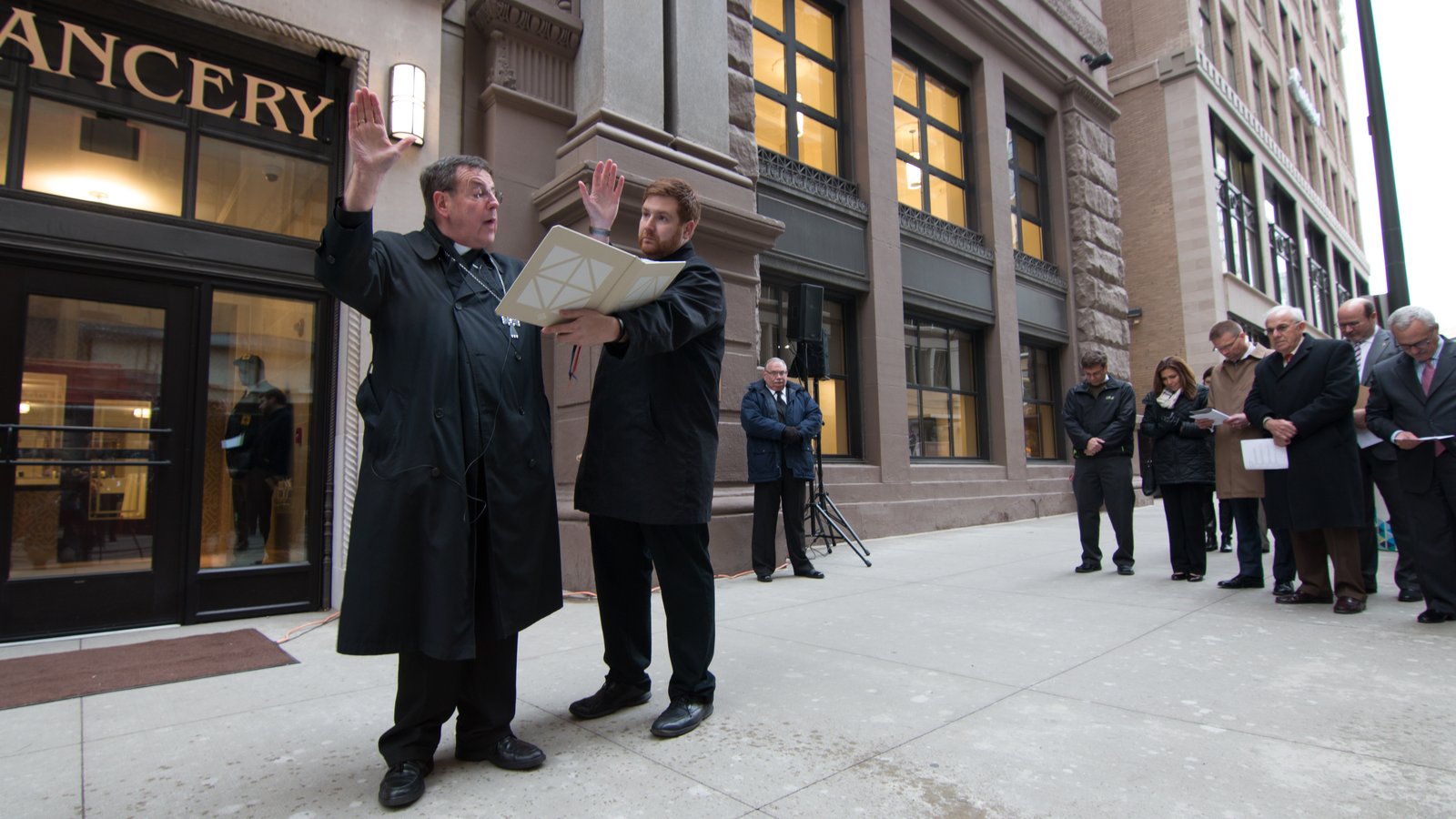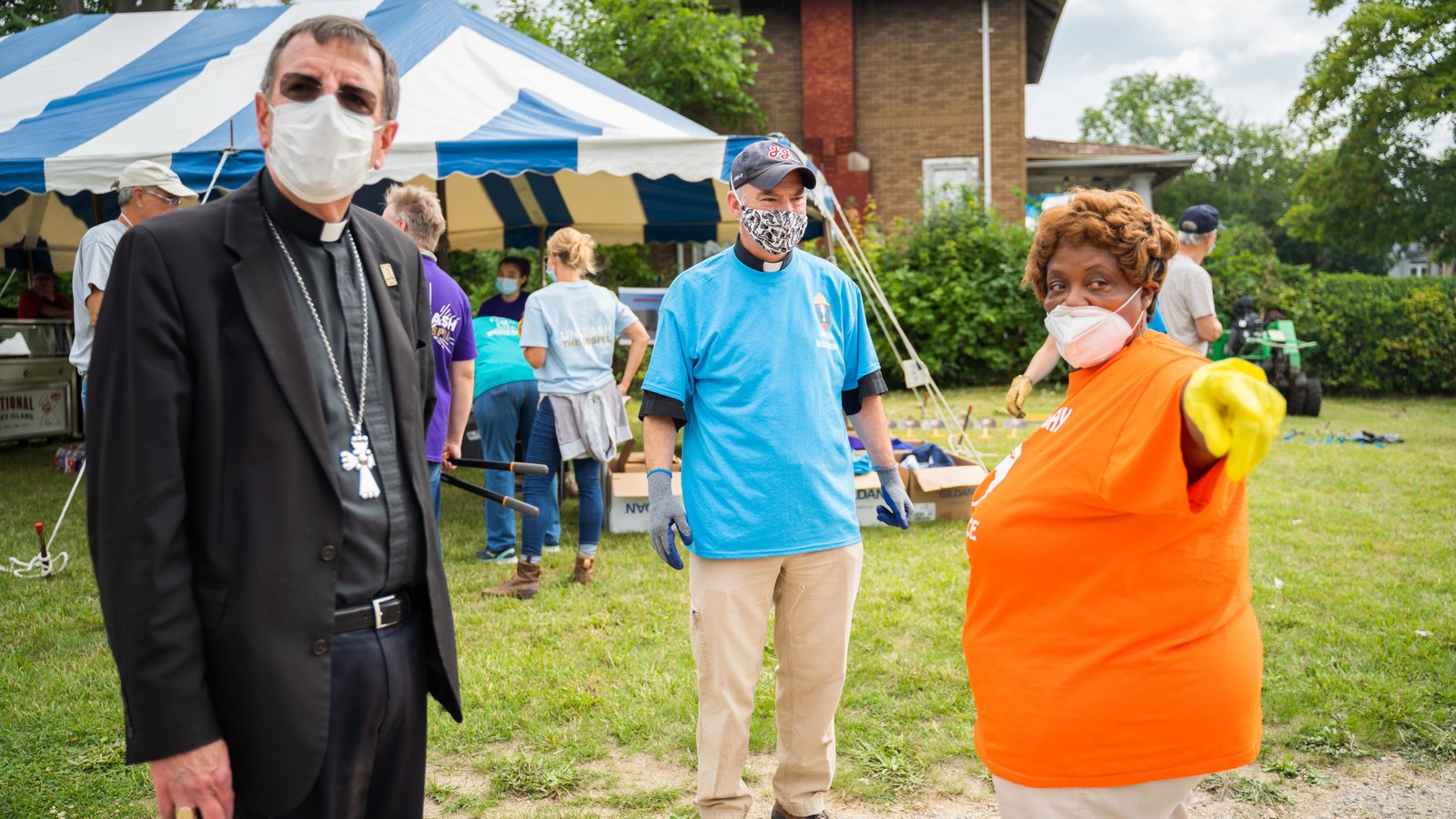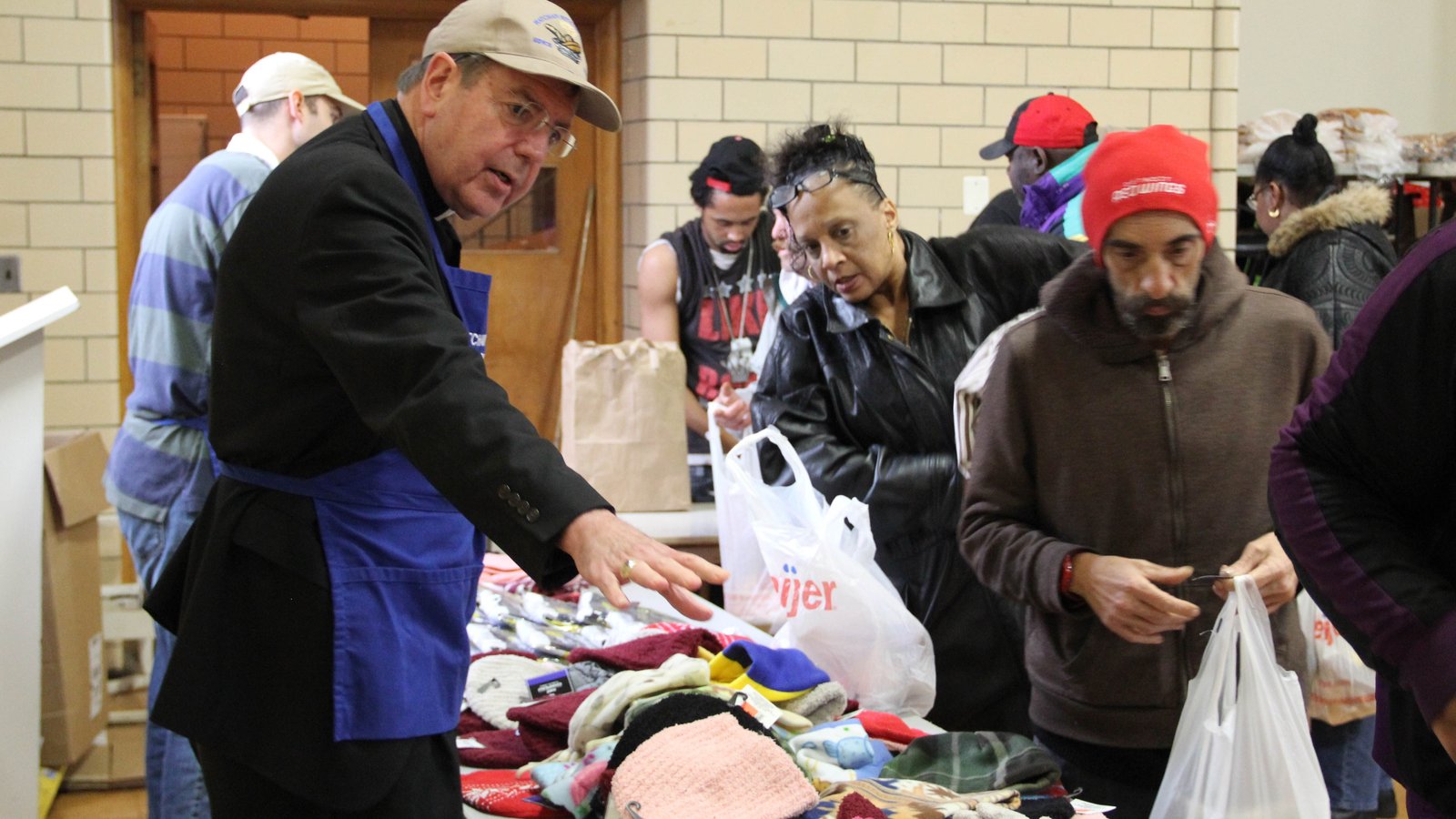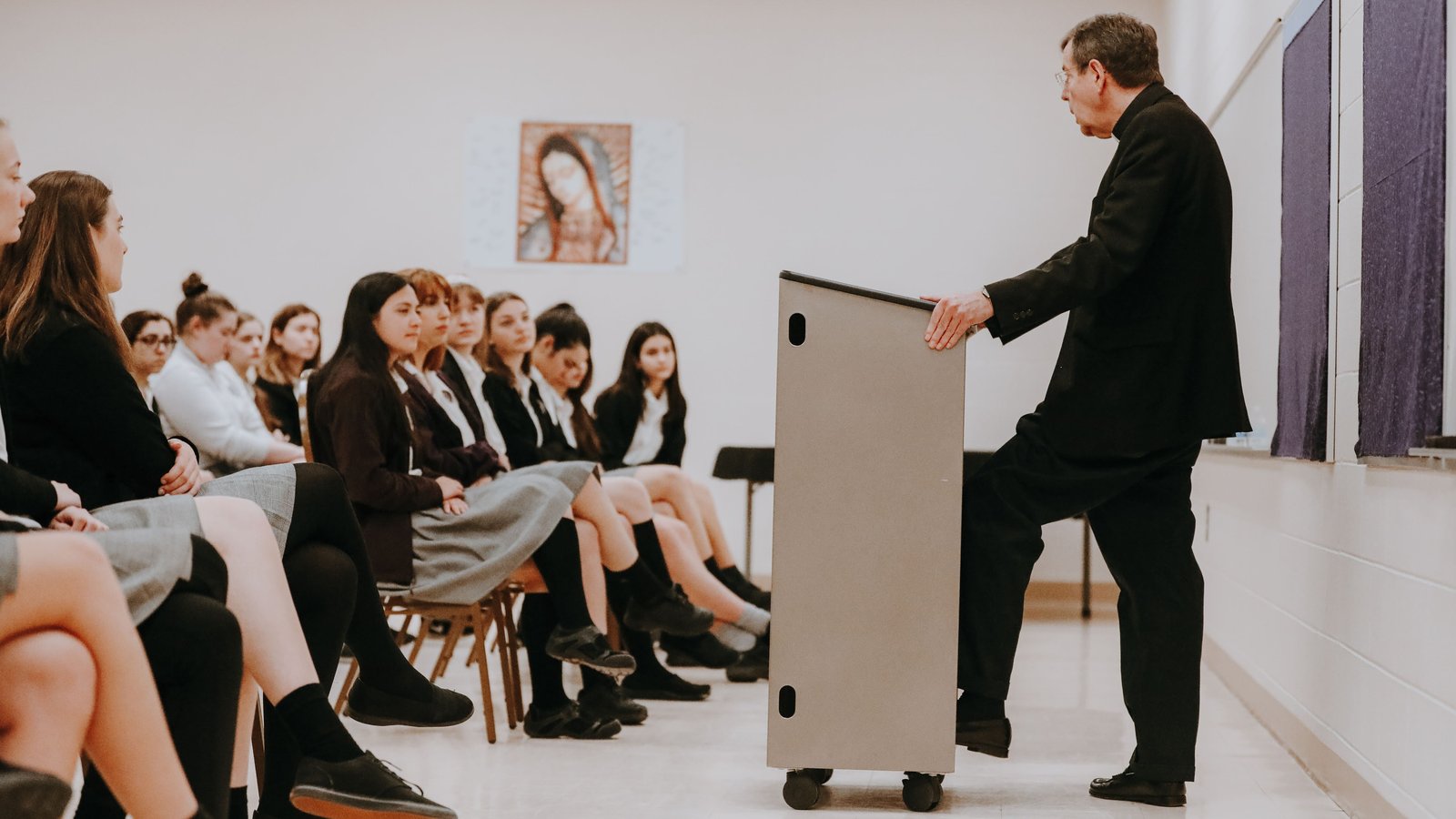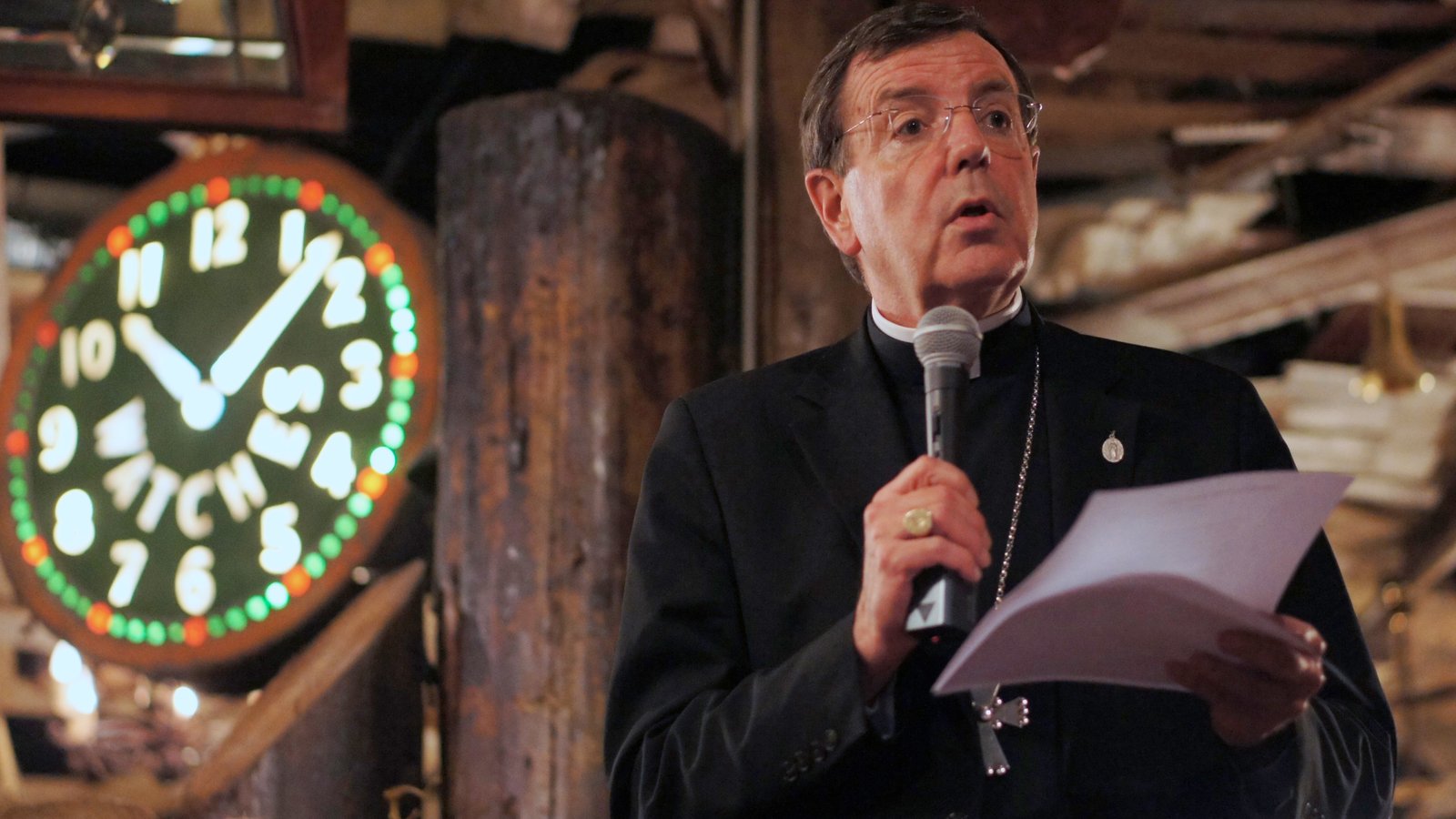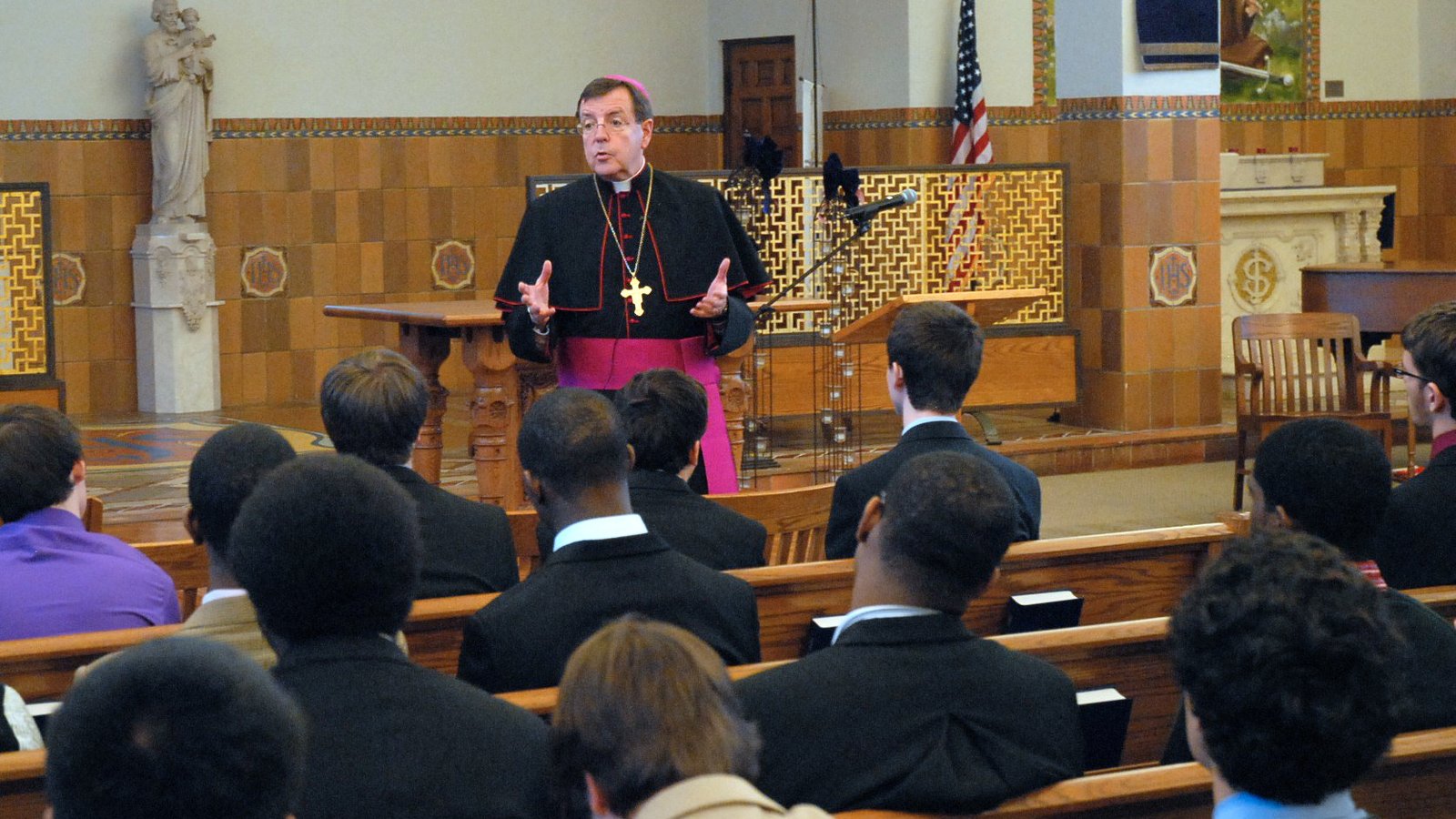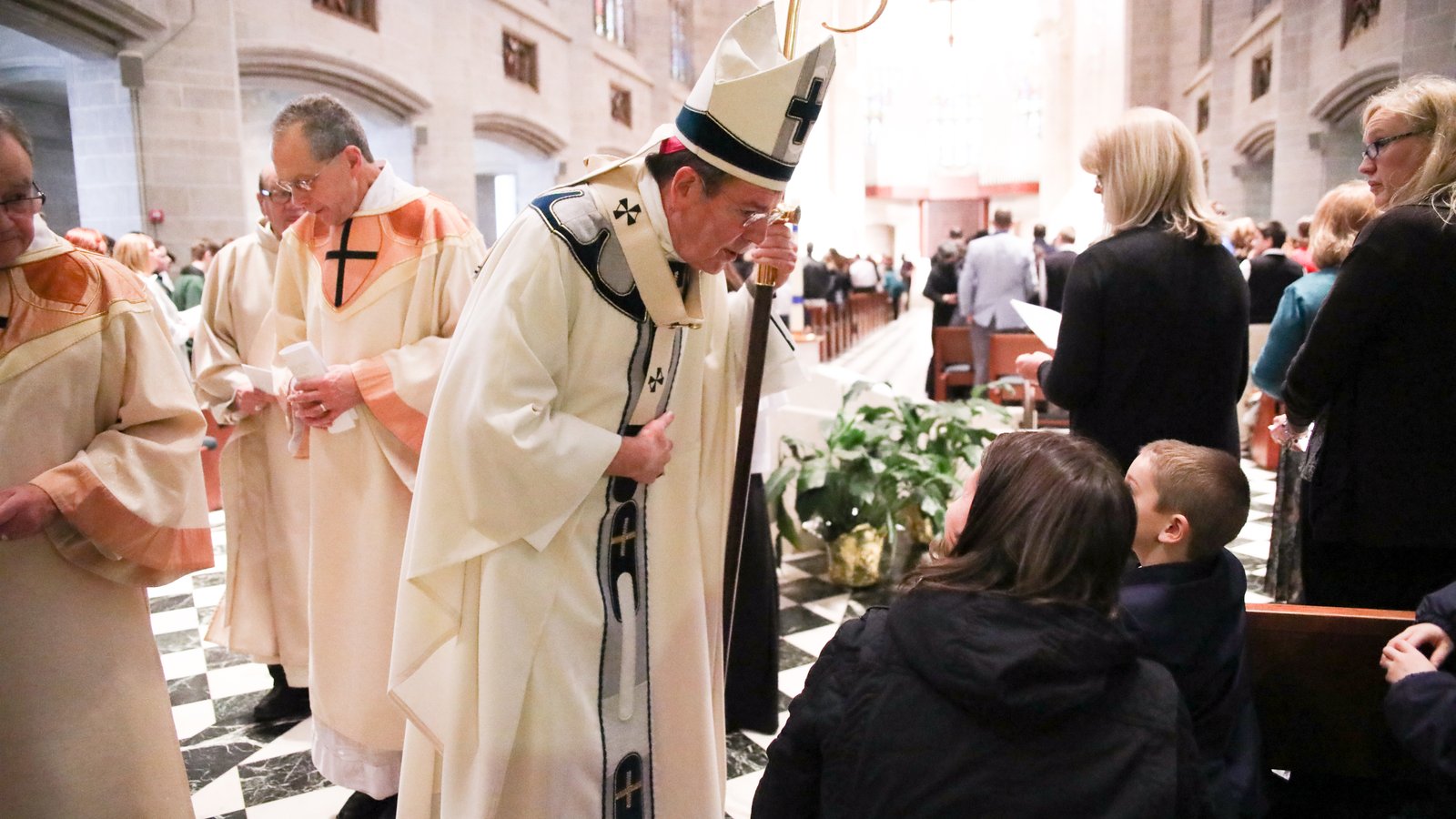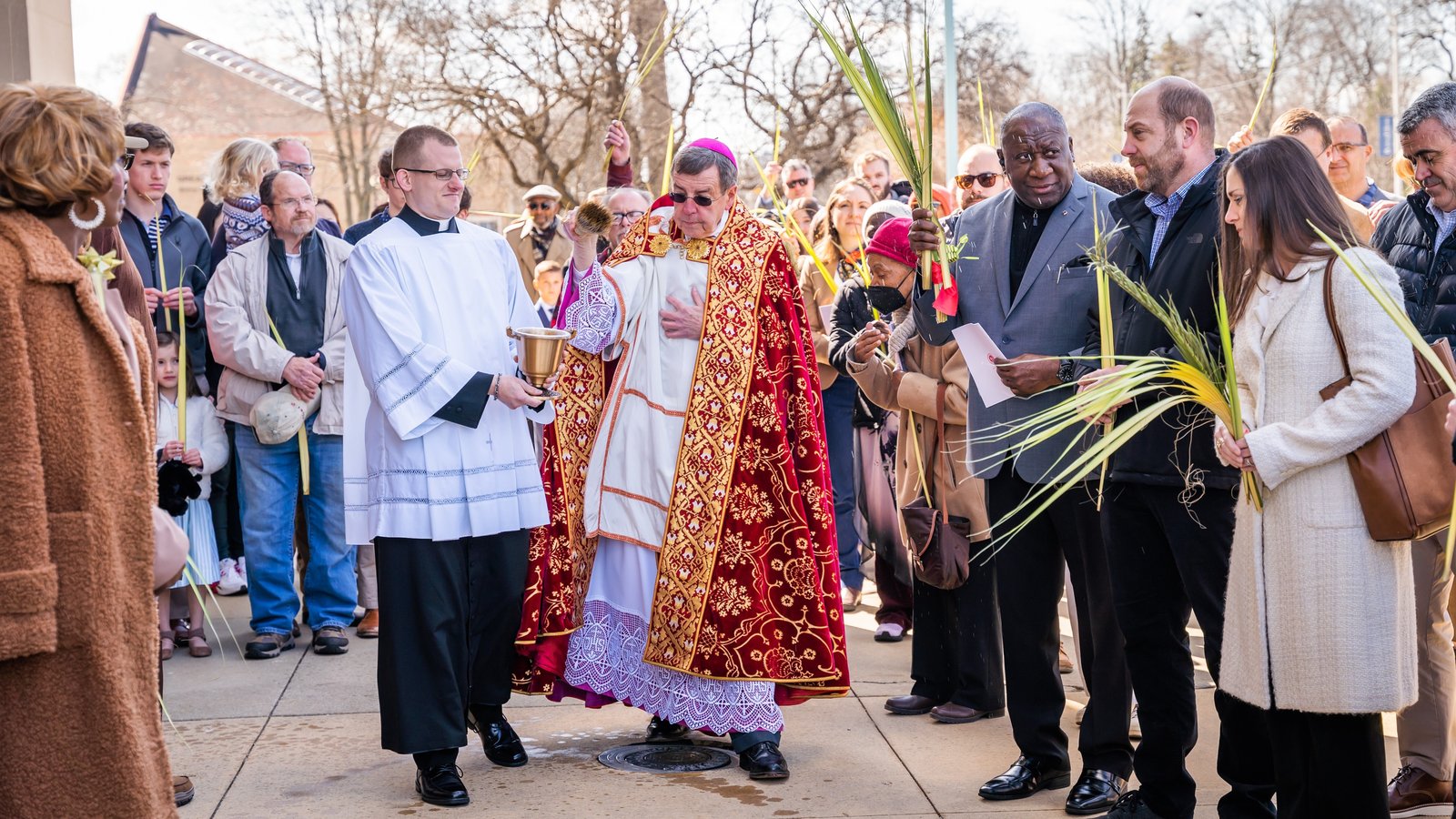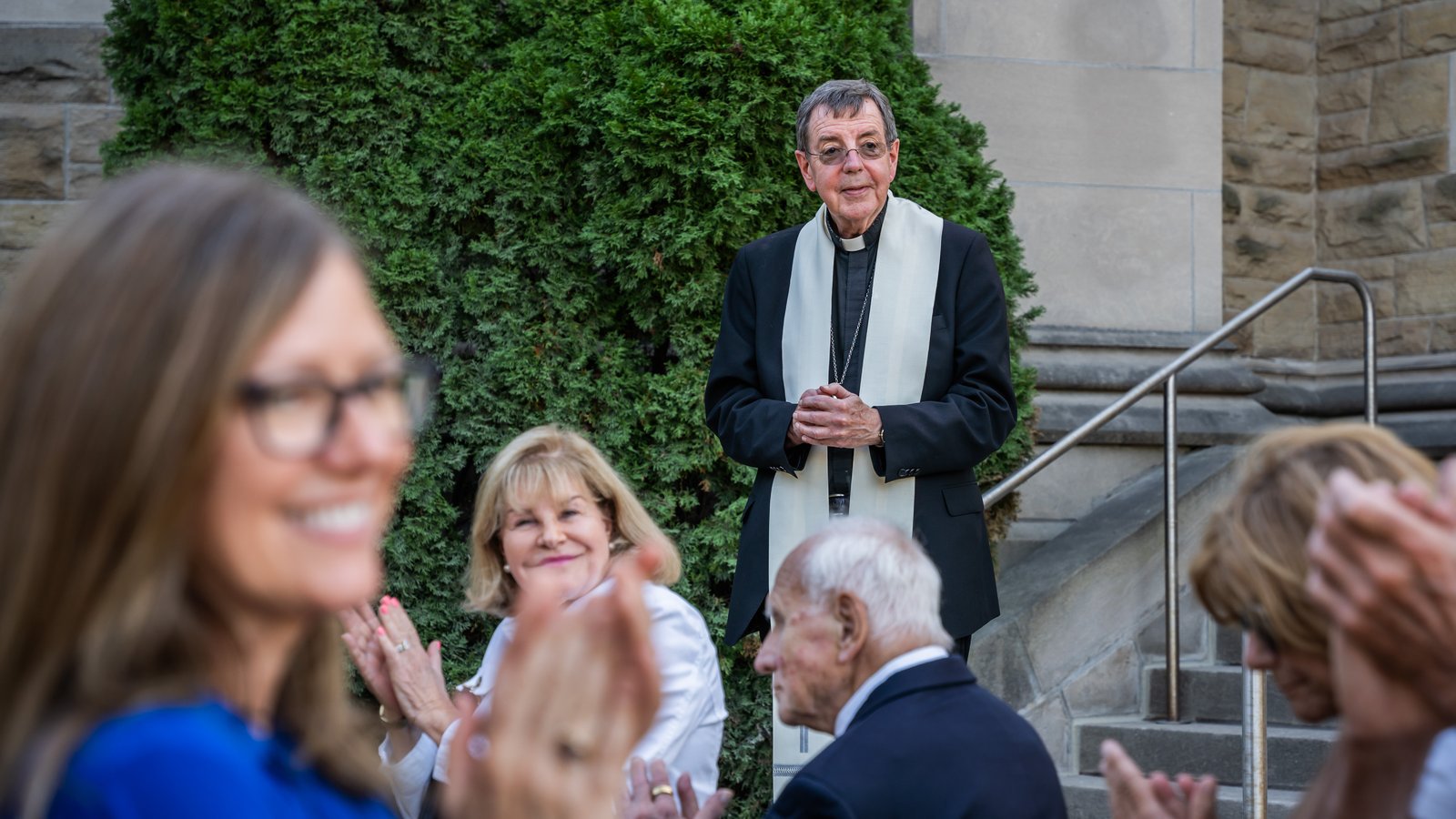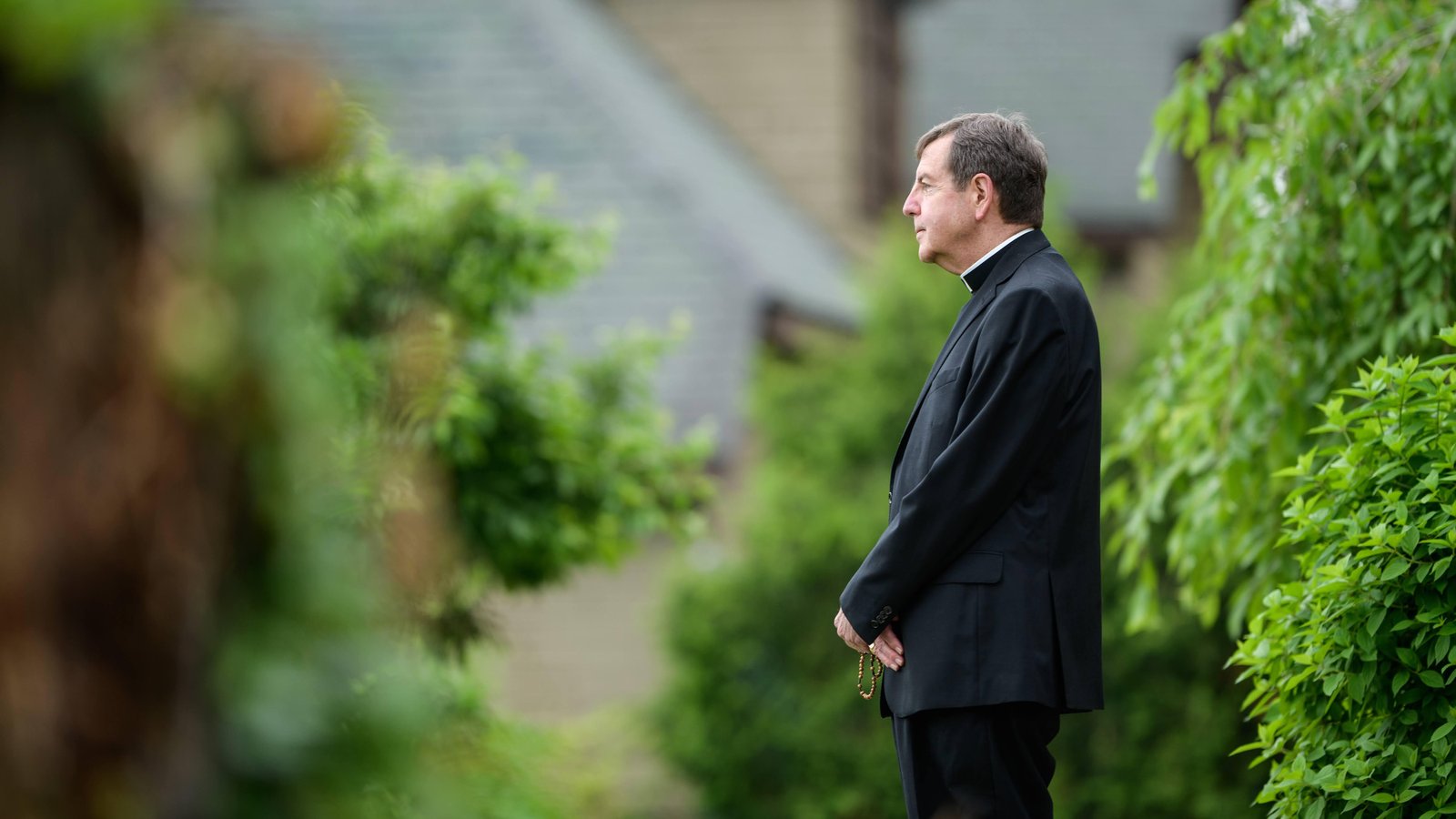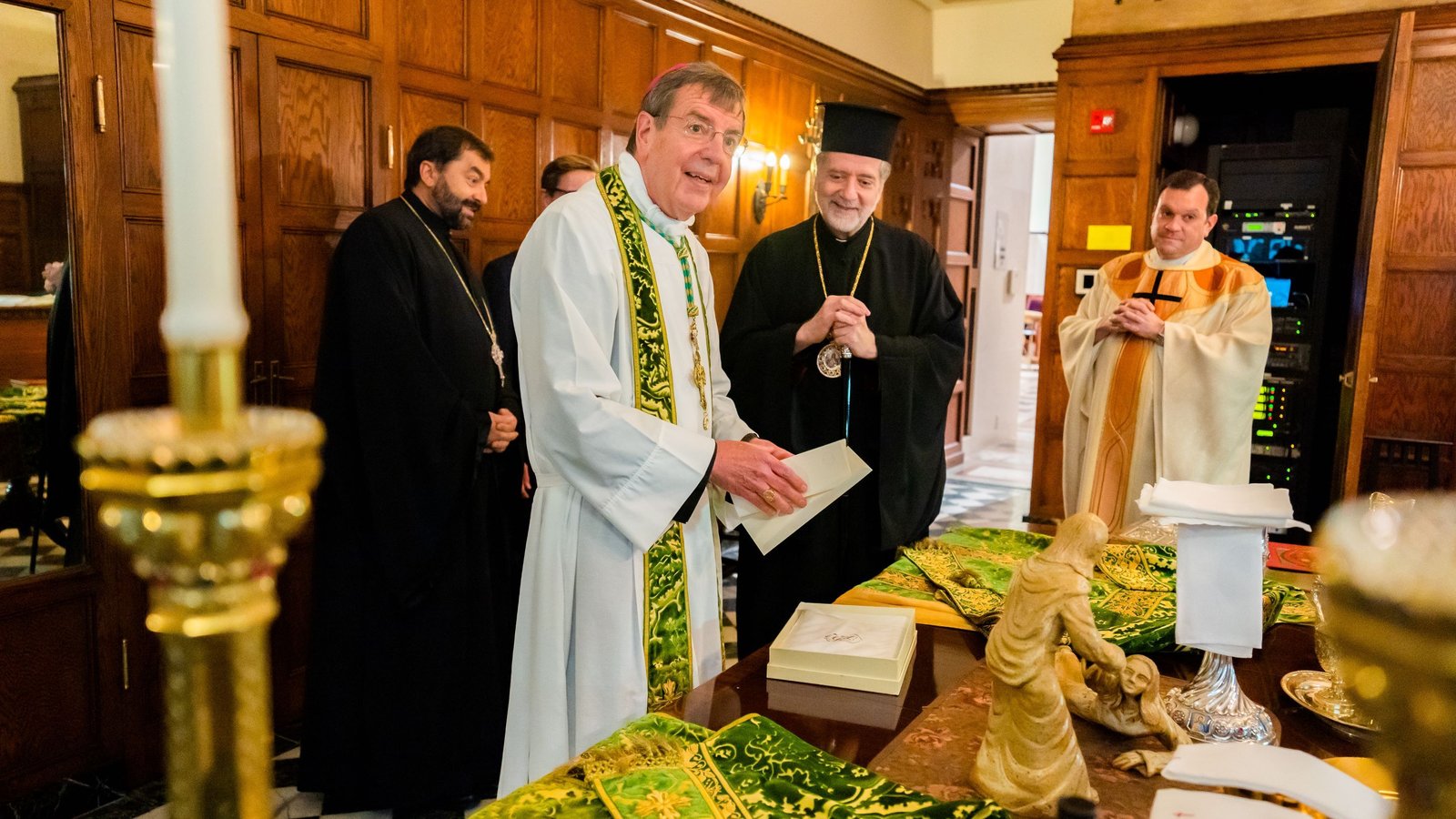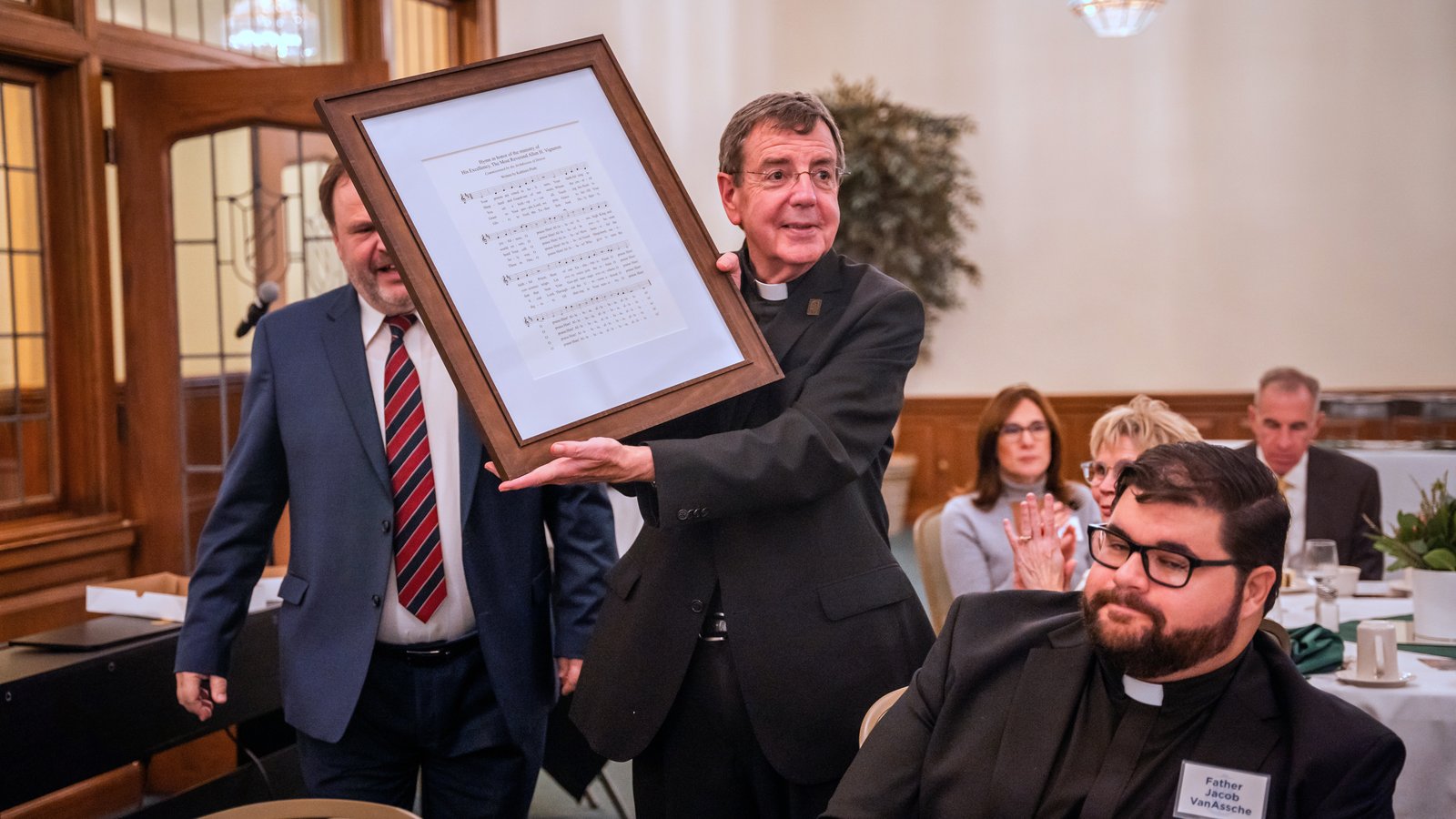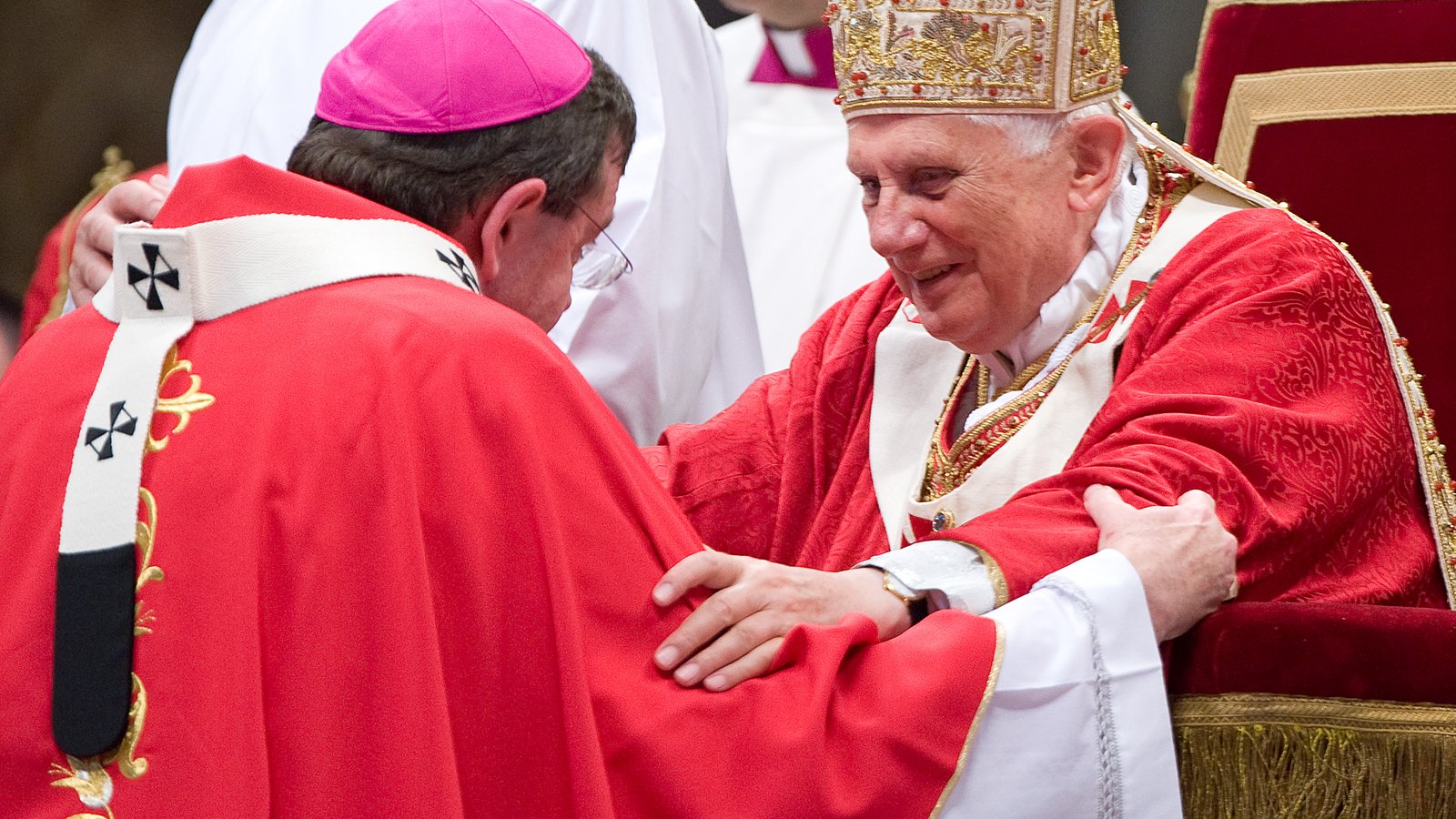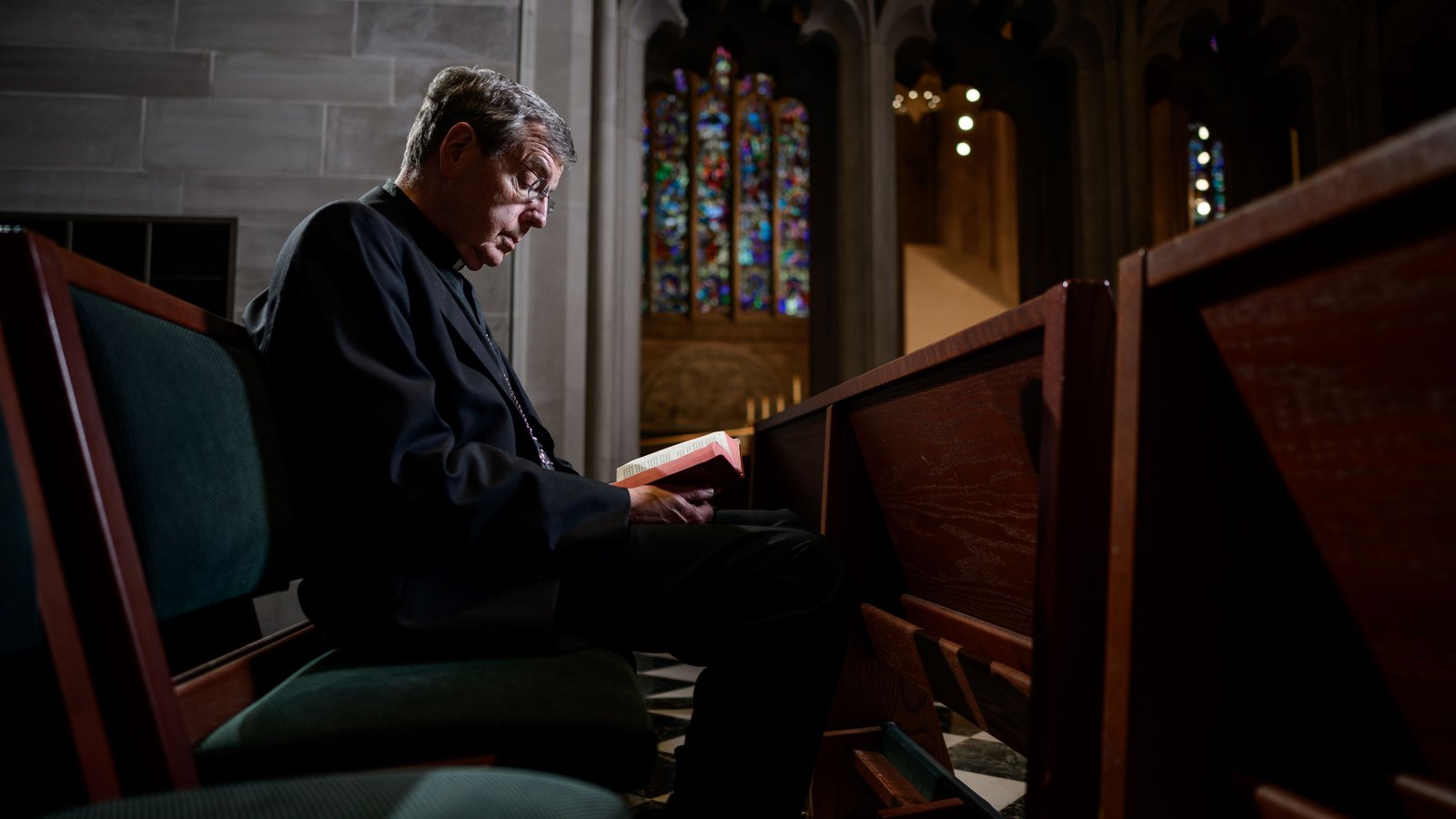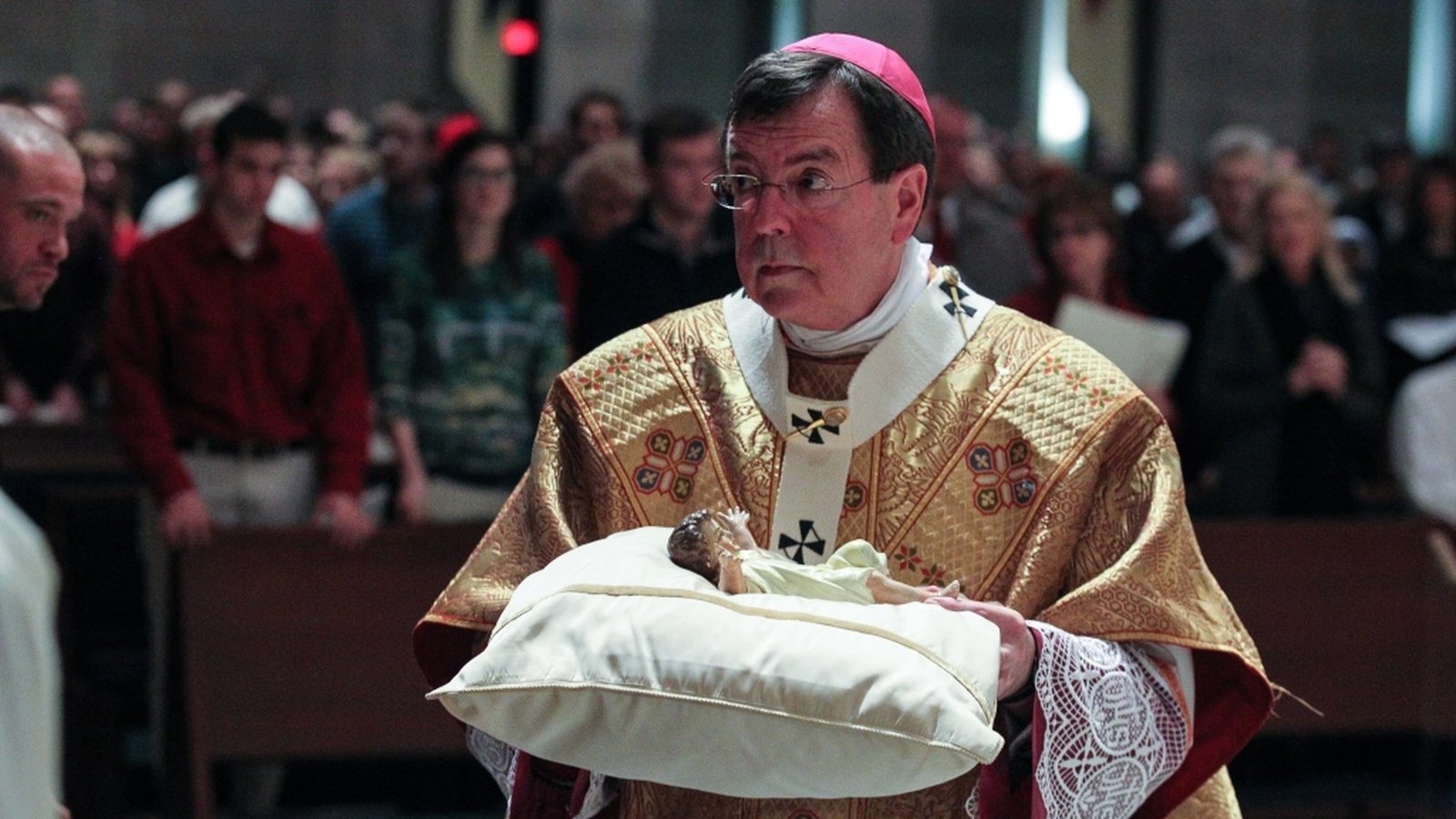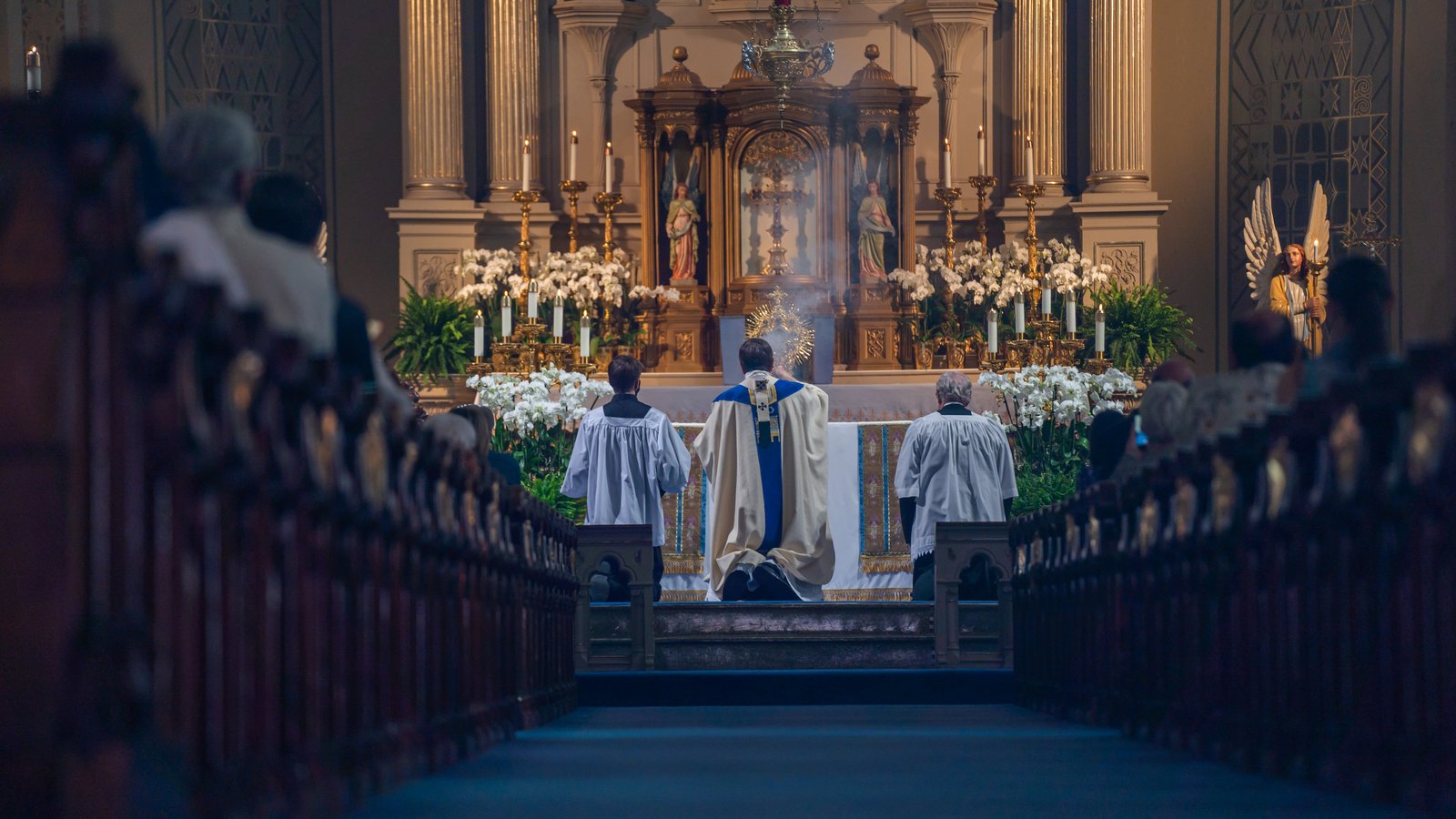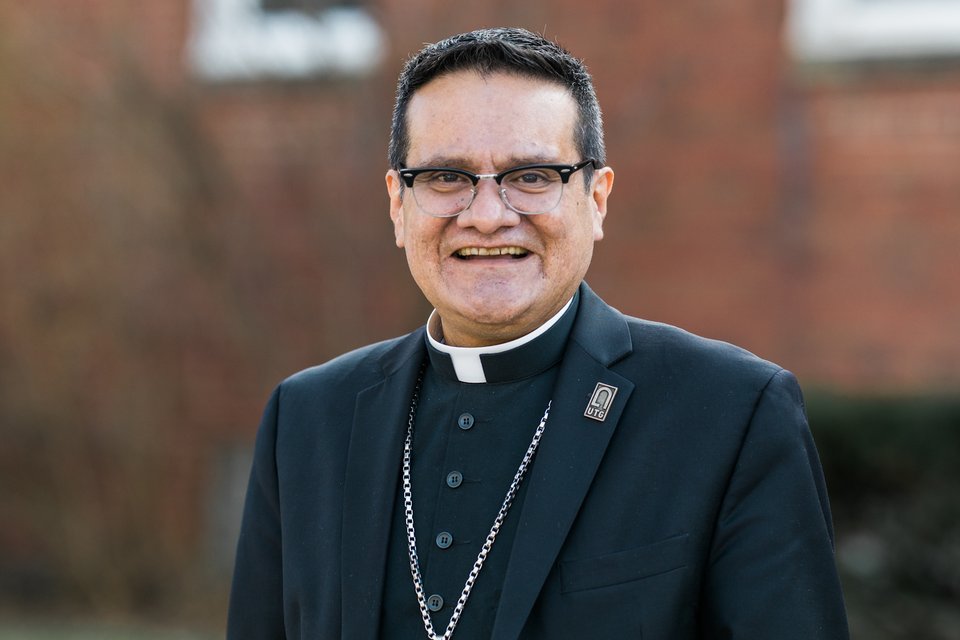Those who know him best say Archbishop Vigneron's prayerful humility, authentic faith are gifts to the Archdiocese of Detroit
DETROIT — A good listener. A thoughtful teacher. A humble mentor. A prayerful man of God.
Those who have worked and served with Archbishop Allen H. Vigneron describe Detroit’s chief shepherd with a multitude of grateful adjectives, but perhaps Bishop Robert J. McClory sums it up best.
“Archbishop Vigneron has an extraordinary combination of deep trust in God, a sense of divine providence that God is in charge, that His will is supreme, and at the same time an extraordinary work ethic rooted in his faith,” Bishop McClory said. “He trusts God, but he knows that the Lord has given him a mission and a purpose.”
As Archbishop Vigneron celebrates his 75th birthday, that sense of mission, purpose and trust in God’s plan has only grown stronger, those who know him say.
The archbishop’s legacy will forever be tied to Synod 16, an effort he championed and continues to champion as a transformational movement of the Holy Spirit in the life of the Archdiocese of Detroit, said Bishop McClory, who currently serves as the bishop of Gary, Ind., but served as moderator of the curia for the Archdiocese of Detroit, Archbishop Vigneron’s chief of staff, from 2009-18.
But more than the synod — and the pastoral letter it produced, Unleash the Gospel — Archbishop Vigneron’s unwavering commitment to the Gospel comes from a place of deep, personal faith.
“He is a man of great trust,” said Harry Kemp, a longtime friend and adviser of Archbishop Vigneron’s who serves on the archdiocesan Unleash the Gospel Pastoral Council. “He recognizes in all things, the good and the bad, the challenges and difficulties, that God’s hand is at work, and I think that gives him the perspective to maintain peace and calm.”
“To see him working so hard to love and to serve the people of Detroit, and to do so rooted in his faith, has been quite extraordinary,” Bishop McClory added. “He brings to his role as archbishop a deep sense of what it means to be a priest of Jesus Christ.”
Give a gift in honor of Archbishop Vigneron's 75th birthday or send him your words of gratitude
While Archbishop Vigneron remains steadfastly focused on the Church’s mission, friends and coworkers say it’s right to reflect on the ways in which he’s changed — and continues to change — the culture of the local Church, one soul at a time.
It’s not hyperbole to say the archbishop’s laser focus on the Holy Spirit’s message of the synod — that every person in southeast Michigan is called to be and to create saints — has touched just about every aspect of Catholic life in southeast Michigan.
“The synod changed who we are in a fundamental way,” said Kathleen McCann, a close lay adviser who has worked with the archbishop in several capacities. “You can see the signs of Synod 16 if you want to open your eyes and look around and see them. They’re everywhere.”
From small group Bible studies to inter-parish collaboration, intercessory prayer teams to Catholic school curriculums, the archbishop’s insistence that every activity be about mission — and his ability to empower others to follow through on that mission — has created a culture in which every person has a role to play, McCann said.
The archbishop’s collaborative leadership style — manifested in both the synod and in his day-to-day duties — comes from his heart, said McCann, a member and former chairwoman of the archdiocese’s Catholic Schools Council and a member of the Advancement Council.
“He’s sincerely interested in learning,” McCann said. “He’s got a very deep, natural curiosity, and a pretty incredible intellect. He wants to know you, and he wants to know what you know. This collaboration is a natural part of who he is.”
In meetings, Archbishop Vigneron is often a quiet participant, listening intently to the perspectives of others and asking thoughtful questions before taking decisions to prayer, said Eileen Newell, who chairs the archdiocesan Advancement Council and serves as vice chair of the Catholic Schools Council.
“The archbishop is a good listener, and he creates an environment to have conversations,” Newell said. “He surrounds himself with people who have experiences outside of the Church, and that isn’t always easy. But through the questions he asks, and through dialogue with different advisers, he finds a way to enhance the mission of the Church by creating a community that loves Christ.”
The archbishop’s confident trust in God’s providence is a key part of his decision-making, friends say, allowing him to receive information and make the best judgment he can, relying on the Holy Spirit for the results.
Bishop McClory said that’s one of the lessons he’s taken with him to Gary since receiving his own call to the episcopacy in 2019.
“Having the opportunity to live and work with the archbishop, I could see not just how he led in a public fashion, but I could see how he took the pressures of his office, his responsibilities, to prayer,” Bishop McClory said. “If you have that confidence, that abiding sense that God is in charge, you can lead with integrity. You can lead with compassion, and you can set a vision for the future, confident that the Lord is with you.”
As a native of southeast Michigan, Archbishop Vigneron’s care and concern for the people of the city of Detroit — Catholics and non-Catholics alike — is as organic as it is authentic, said Isaiah McKinnon, the city’s former police chief and deputy mayor and a professor at the University of Detroit Mercy.
“I think his greatest trait is the warmth and love he shows for the people in our area,” McKinnon said. “There’s no question that he’s tried to bring people together. Detroit is a city that’s 81 percent African-American, and I believe he’s doing everything he can for the Black community, the Hispanic community, and the community in its entirety to show that it’s important for us to do as much as we can together.”
After inheriting an archdiocese in a historically divided city beset by the deepest recession in a century, Archbishop Vigneron’s commitment to the city of Detroit and to racial healing has allowed the Church to remain a steadfast witness to the inclusivity and hope of the Gospel, McKinnon said.
Through support to Catholic aid agencies serving in the city, interfaith collaboration and frequent personal visits to Detroit’s soup kitchens, food pantries, parishes and schools, Archbishop Vigneron’s presence in the city hasn’t gone unnoticed, McKinnon said.
“As the city was going through bankruptcy, there was this feeling of despair,” McKinnon said. “People were losing their pensions, their homes, their jobs, and what the archbishop did was really to stand up and say, ‘We’ll get through this, and we’ll stand tall together.’ He showed that we’re all God’s children and we’re here to do everything we can to feed, to educate people and to do the right thing.”
For Archbishop Vigneron, that sense of unity and hope comes from his unwavering belief in Christ's resurrection, a reality he’s driven to share with everyone he encounters, friends say.
A former professor and rector of Sacred Heart Major Seminary, the archbishop has an unmistakable passion for teaching the Catholic faith, especially in his homilies and presentations, but even in private conversations, said Michael Trueman, the Archdiocese of Detroit’s chancellor.
“The archbishop is a consummate teacher,” Trueman said. “I admire his clarity of thought. He’s done a great service over the years of being very clear in his teaching, and that’s a great benefit (to the local Church). There’s a line in Scripture that during the Annunciation, the Blessed Mother ‘pondered these things in her heart.’ I think the archbishop has a great capacity for listening and holding things in his heart, and discerning what’s best for the archdiocese.”
Few things give the archbishop greater joy than sharing his love of Christ with others, especially young people, said Fr. Stephen Pullis, director of graduate pastoral formation at Sacred Heart Major Seminary who previously served and traveled with the archbishop as his priest-secretary from 2013-17.
“One of my favorite memories with Archbishop Vigneron was going with him to the local Catholic high schools,” Fr. Pullis said. “He loves being able to answer questions that young people ask him. Some of them are really earnest questions, and some come from a place of skepticism. But he always takes these questions as a great opportunity to teach.”
Newell, who serves on the Catholic Schools Council, recalled a particular homily in which the archbishop beamed as he preached to students during the annual Catholic Schools Week Mass at the cathedral on the origins of the word “Hosanna,” the Hebrew victory cry.
“He was instilling in the students a passion for Christ’s victory over death,” Newell said. “In his delivery style, he was a patriarch, passing on stories from one generation to the next. It was a moment in which I truly understood him to be a joyful missionary disciple.”
Students aren’t the only ones who benefit from Archbishop Vigneron’s wisdom, Fr. Pullis said. Living with the archbishop, Fr. Pullis joked he “should have gotten another degree” from listening to his mentor’s insights during dinner conversations.
“We’d talk about all sorts of things, from what’s going on in the world to deeper philosophical questions,” said Fr. Pullis, who also served as the archdiocese’s director of Evangelization, Catechesis and Schools from 2017-21. “It was a great opportunity to understand his mind and how he uses all of his gifts to really embrace his role as the leader of our Church.”
For a man of such great learning, Fr. Pullis said one of the archbishop’s most underappreciated qualities is his ability to reserve judgment when he doesn’t have enough information — or when a particular matter falls to someone else’s discretion.
“Once, I asked him about some issue going on, and he said, ‘I don’t have an opinion on that right now,’” Fr. Pullis said. “And I thought, ‘Wow.’ I think about things very differently. I often think in a given situation, ‘What would I do?’ or ‘What’s my opinion here?’ But he has a great freedom to say, ‘God has given me this work to do. I don’t need to go opining about the work He’s given other people to do.’”
The work God has given Archbishop Vigneron to do — to lead Detroit’s Church into a new age of evangelization — is a great one, his coworkers say, and he does it with a heart full of gratitude and wonder.
While his deep knowledge of Scripture and Church history are manifested in his public homilies and talks — along with a sharp wit and occasional pop culture-fueled one-liners that can get a congregation chuckling — underneath Archbishop Vigneron’s professorial demeanor is a man deeply in awe of God’s majesty, Trueman said.
“When my wife and I attended his reception of the pallium from Pope Benedict (in 2009), there were a number of times when he was moved to tears at the beauty of what surrounded him,” Trueman recalled. “He was, I think, humbled by the fact that the Lord would call him to the episcopacy and give him care of his native Church here in Detroit. It speaks to his deep love and passion for people and the Gospel.”
Even those who have known Archbishop Vigneron since his teenage years say the archbishop’s authenticity is a measure of his humility, a trait learned growing up on a farm in rural Fair Haven in a devoted Catholic family.
Msgr. Patrick Halfpenny, one of the archbishop’s longtime friends, said the archbishop’s ability to connect with people stems from the fact that he doesn’t take himself too seriously — while giving all the seriousness in the world to the task God has given him.
“He is the way he is because he prays the way he prays,” said Msgr. Halfpenny, a seminary classmate of Archbishop Vigneron's who was ordained to the priesthood with him in 1975. “That’s the way he’s put together. All the pieces fit. One of the things that exemplifies that is his ability to acknowledge a failing, and most especially to laugh at himself. He says, I think with ease, that he recognizes he’s not perfect. He’s still a work in progress, but he’s trying to do what his episcopal motto says, and that’s keep his eyes fixed on Jesus.”
And where the shepherd looks, the sheep are sure to turn their attention, Msgr. Halfpenny added.
“It’s kind of like when you see somebody looking at something in a museum. You tend to look in that direction, too. So, if he’s looking at Jesus, that invites me to look at Jesus,” Msgr. Halfpenny said.
Copy Permalink
Bishops


